- Skip to navigation
- Skip to main content

Paying your employees travel allowance
You can cover your staff's travel expenses. This is not mandatory, unless stated in the collective labour agreement (CAO) for your industry. Or if it is stated in your own employment contracts or company regulations. Read what you should take into account when paying travel allowances.
On this page
How does travel allowance work, tax-free travel allowance 2024, carpooling and travel allowance, travel allowance when working from home, travel allowance in case of illness, reimbursing more using the work-related costs scheme.
With a travel allowance ( reiskostenvergoeding ), you help pay for your employee's travel expenses. It does not matter if your employees travel on foot, by bicycle, private car, or public transport. The distance does not matter either. Nor whether it is a commute or business trip, such as a visit to a customer.
Kilometre allowance for self-employed workers
Do you use your private car for your business ? Then you may deduct a business allowance of €0.23 per kilometre from your profit. This is allowed if you are an entrepreneur for income tax purposes. You can submit the kilometre allowance with your annual income tax return.
In 2024, you may reimburse your employees €0.23 per kilometre tax-free. This amount is not regarded as salary by the Netherlands Tax Administration ( Belastingdienst ). So, you do not withhold payroll taxes over it. You can also reimburse a higher amount per kilometre. But the Tax Administration regards anything above €0.23 as salary, so it must be taxed.
Minimum travel allowance
You decide how many kilometres you want to reimburse. You can state the minimum number of kilometres in the employment agreement or collective labour agreement (CAO).
Reclaim travel expenses up to 5 years later
Employees may reclaim their travel expenses up to 5 years after the travel date. This means that your employees may still reclaim travel expenses from you for the past 5 years. Your employees must then be able to prove their travel expenses and/or kilometres travelled. For example, by keeping track of the kilometres travelled in a travel registration system. The travel expenses can only be claimed back if you have made agreements about the travel costs.
Own or public transport
If your employee travels by private transport, you may reimburse a maximum of €0.23 per kilometre tax-free. This is also possible if an employee has to detour. For example, to take children to school. In that case, you may not reimburse the kilometres for the detour tax-free, because these are private travel expenses.
Does your employee travel by public transport? Then you can also reimburse €0.23 per kilometre travelled. Or you can reimburse the actual travel costs tax-free. For example, the cost of the (return) train ticket. This is usually done via a declaration form. Your employee then submits the train ticket or an overview of the trips made with a public transport card. This lists the costs incurred.
Other transport
Does your employee travel in a different way than by public or private transport? For example, by boat, airplane, or taxi? Then you reimburse the costs incurred. A receipt proving the costs is required for this. Such as a plane ticket or receipt for the taxi ride.
Do your employees come to work together by car (carpooling)? Then there are 2 options for the travel allowance:
- You organise the carpool You make an appointment with one employee to drive and pick up other colleagues. You reimburse this employee €0.23 per kilometre, including the kilometres that they have to detour to pick up the others. The passengers do not receive any compensation, because you make this transport possible for them.
- Your employees organise the carpool themselves They will then all receive €0.23 per kilometre. You do not have to reimburse the kilometres for making a detour to pick up others. These are seen as private travel expenses.
Employees who partly work from home can also receive a travel allowance.
You can choose from 2 options:
- You calculate the actual travel costs based on the kilometres travelled on days that your employee travelled for work.
- You agree to a fixed fee with your employee. The law provides for the 128/214-day scheme (in Dutch) for this. This scheme means that an employee who travels to a fixed workplace for at least 128 days in a calendar year may receive an allowance as if they travelled on 214 days. For example, does your employee travel to a fixed workplace for 130 days? Then you may give an additional travel allowance for commuting for 84 days (214 -130 = 84).
Does your employee not work full-time?
Then you adjust the 128/214-day scheme to the number of days the employee works (pro rata).
Example 1: For an employee who works 3 days, this involves 77 travel days (3/5 of 128 days) and you reimburse 128.4 days (3/5 of 214 days).
Example 2: For an employee who works 4 days, this involves 102 travel days (4/5 of 128 days) and you reimburse 171.2 days (4/5 of 214 days).
If an employee reports sick and is expected to be absent for less than 6 weeks, you may continue to pay the travel allowance.
In case of long-term absence, you may only continue to pay the travel costs for the first 2 months. After that, this is allowed again in the first month after return.
The reimbursement of €0.23 per kilometre is the limit for the Tax Administration. If you reimburse more, your employee pays tax on that extra amount. If you use the discretionary scope ( vrije ruimte ) of your work-related costs scheme for this higher reimbursement, this amount will remain untaxed.
Read more about calculating the discretionary scope in chapter 10 of the Payroll Taxes Handbook (PDF, in Dutch).
Related articles
- Companies with 100 or more employees must report on business travel
- Work-related costs scheme: staff allowances
- Overview of personnel costs
Questions relating to this article?
Please contact the Netherlands Chamber of Commerce, KVK
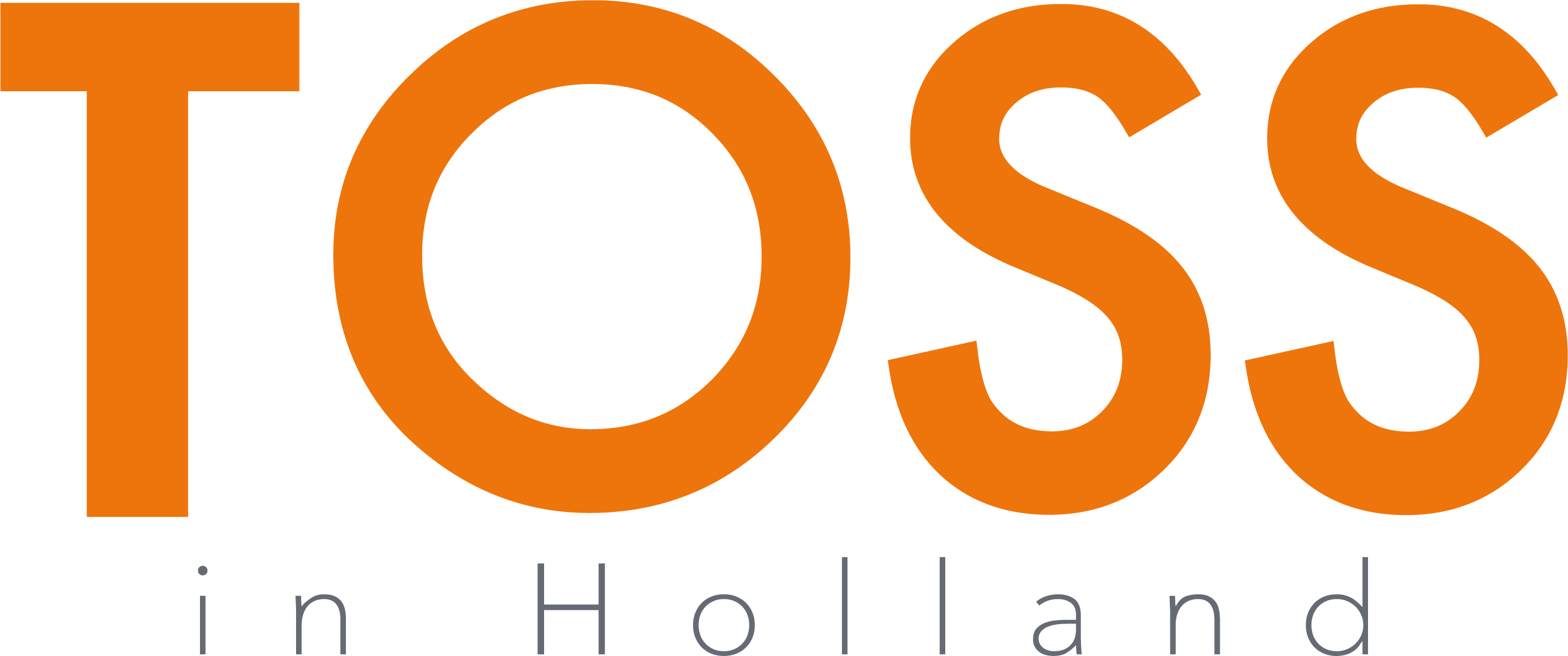
Make an appointment ➝

Decades of experience within payroll and international business

We assist in hiring professionals from and all around the world.
TOSS in Portugal
Toss in belgium.

Payroll Services
Hiring an expat the easiest way with TOSS as legal employer.

IND Sponsorship
We are a recognized sponsor of the IND.

Salary Administration
Administrative obligations towards your employee and the authorities.

Employer of Record
Expand into the Dutch market without setting up a new entity.

Recruitment
Find the right employer and next adventure in the Netherlands.

Immigration Services
We arrange the right documents for your stay in the Netherlands.

A tax break specific for highly skilled expat employees in the Netherlands.

Tax Services
A wide range of tax services to assist with the often complicated tax implications.

Additional Services
Services and information to get you settled in the Netherlands.
Discover Amsterdam’s Fitness Revolution with Jimme
A new beginning: support for accompanying partners in the netherlands, ind salary criteria 2024, näpp: elevating childcare for international families in the netherlands, why you should hire abroad: 6 proven benefits of hiring expats, business case: the orientation year, how sick leave is arranged in the netherlands, working from home in the netherlands: 7 things employer and employee should know, renting out your house in the netherlands, how and why, 14 fun things to do during spring in the netherlands.
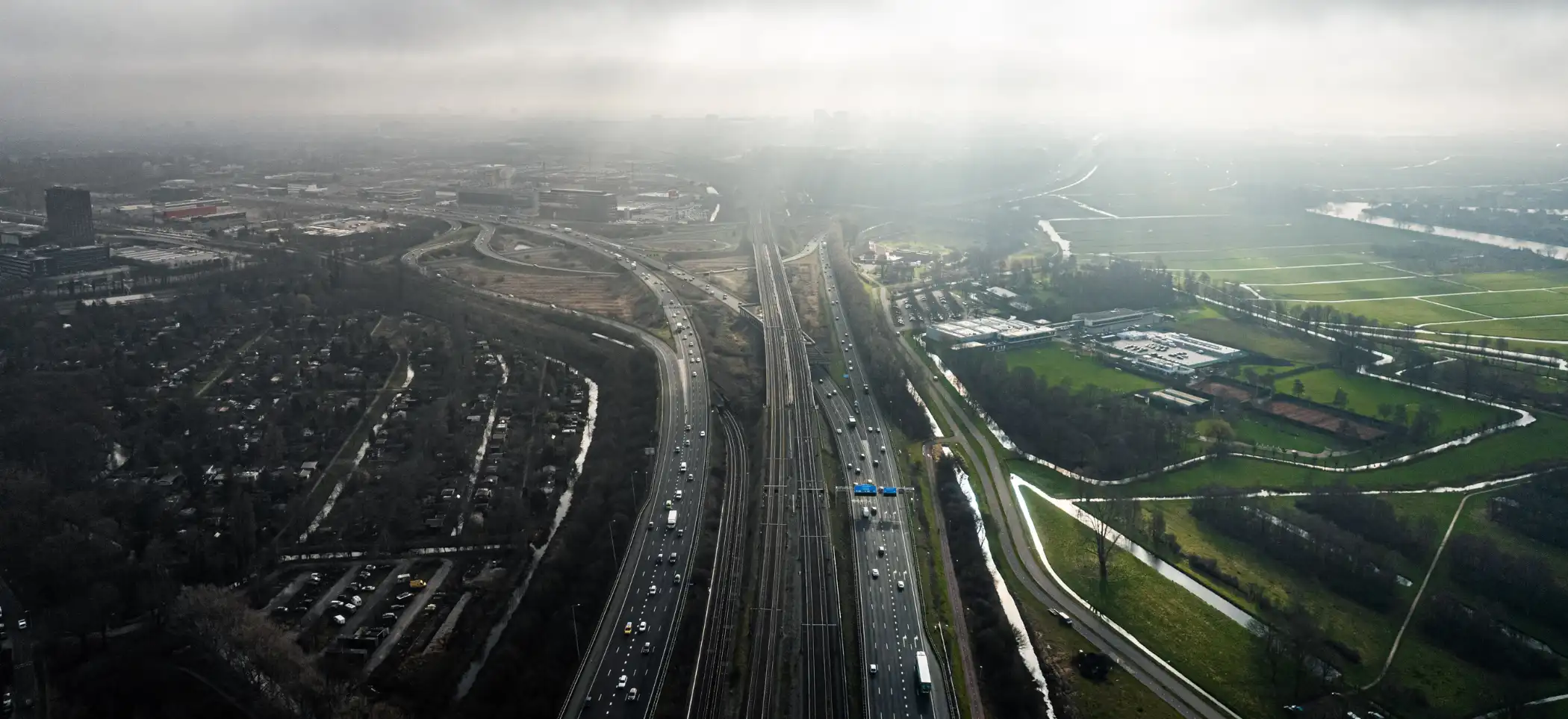
Everything You Need to Know About Travel allowance in the Netherlands: A Guide for Employers and Employees
Travel expense reimbursement is an important topic for both employers and employees. Whether you commute to the office daily, travel to clients regularly, or visit different locations for work, it’s essential to be aware of the options and rules regarding travel expense reimbursement. In this blog, you will find everything you need to know about it.
Is travel allowance mandatory in the Netherlands?
In the Netherlands, reimbursement of travel allowance by employers is not required by law unless it is in the collective bargaining agreement. Many employers reimburse travel expenses even though it is not in their collective bargaining agreement (cao). Reimbursing travel allowance is fair and should be discussed during the job interview.
Does travel expense reimbursement apply to every mode of transportation?
Yes, travel allowance applies to every mode of transportation. Whether the employee commutes to the office by bike, public transport, or car, they are entitled to travel allowance. Even carpooling qualifies for reimbursement. Employers have the choice to reimburse either based on the number of kilometers or the actual incurred costs.
Fixed travel allowance
The exempted travel expense reimbursement for personal transportation has been increased to EUR 0,21 per kilometer in 2023, and it will be further raised to EUR 0,22 in 2024. This can be done based on the actual number of kilometers traveled or through a fixed reimbursement. Opting for a fixed reimbursement reduces administrative burdens, and there is no need for adjustments when an employee occasionally works from home, is sick, or on leave.
Formula for calculating fixed travel allowance
If you want to calculate the amount of travel expenses, there is a formula, which may be more complex than you initially think. First, calculate the distance between home and work. The tax authorities consider the most commonly used route as the standard. Taking the shortest route as a starting point is not applicable. Often, the route via the highway is chosen, which may be longer in terms of distance but faster.
The following formula can be used to calculate monthly travel expense reimbursement:
Monthly travel expense reimbursement EUR 0,21 x distance from home to work x 2 x 214 / 12.
Thus, the employee receives the same amount of travel expenses every month, based on the monthly average, taking into account the number of working and non-working days in that month.
This calculation assumes 214 working days per year.
Variable travel allowance
Variable travel expense reimbursement can be provided to an employee in situations where the employee’s travel patterns and needs vary. Here are some examples of when a variable travel expense reimbursement may be appropriate. For instance, if an employee works at different locations, has flexible working days, uses different modes of transportation, or has varying distances to travel, such as visiting clients.
Public transportation costs
The complete costs for traveling by public transportation can be reimbursed. The employee needs to submit original transport tickets as proof. If an employee uses an OV-chipkaart (public transport card), they can download a declaration overview from www.ov-chipkaart.nl.
If an employee uses their own car, scooter, bicycle, motorcycle, etc., the employer can offer a tax-free reimbursement of EUR 0,21 per kilometer. To qualify for this, the employee must provide a complete declaration overview. The overview should include at least the date, postal code, house number, and city of both the starting and ending points of the journey. If any of this information is missing, unfortunately, no reimbursement can be provided.
If the employee uses a company car, it is not possible to receive a variable travel expense reimbursement since the employee already benefits from using the company car.
Are homeworkers eligible for travel expense allowance?
Employees who work from home often incur additional expenses such as heating, toilet paper, coffee and tea, water, and electricity. A home office allowance can be provided to compensate for these extra expenses. It is not mandatory, but there may be rules regarding it in the collective labor agreement (cao). If there are no provisions in the cao, agreements regarding the home office allowance can be made between the employer and the employee.
How high can the home office allowance be in 2023?
Starting from 2022, the option to provide a tax-free home office allowance was introduced. In 2022, this allowance was EUR 2,00 per day. Now, it has increased to EUR 2,15 per day.
The employer and the employee can make agreements regarding a fixed home office allowance based on the expected number of work-from-home days per week, eliminating the need to track whether the employee worked from home or in the office.
More information about this subject?
Recent blogs.

All , Settling
The solution that not only keeps you fit but also connects you with the local community: Jimme.

All , Moving , Settling , Working
the TOSS coach not only helps and guides the expatriate but also the accompanying partner.

All , Hiring , Working
The important changes in laws and regulations.
Read all blogs
- Call +31 20 820 15 60
- Search
- For employers
- For employees
- Contracting solutions
- StiPP Pension fund
- Service translations
- Work permits
- Highly Skilled Migrants
- Orientation year highly educated persons
- Citizen Service Number
- Health insurance
- Public Register Recognized Sponsors
- Income requirement
Working in the Netherlands: Travel allowance in the Netherlands
On March 13, 2019 by Dutch Umbrella Company
In the Netherlands, the reimbursement of travel expenses by your employer is not required by law. However, most Dutch companies do offer reimbursement for business travel in their employment contracts. The agreements regarding the reimbursement of travel expenses are stated in the collective labour agreement, company regulations or your labour contract. In this blog, we will provide you with everything you need to know regarding travel expenses and travel allowance in the Netherlands.
Travel allowance per km with private transport
When you travel by private transportation (car, motorcycle, bicycle or by foot) it is common to receive travel allowance per km. This tax-free travel allowance may not exceed the maximum of € 0,19 per kilometer. It does not matter if this is commuting or business related travel (e.g. transportation to a client or a business meeting). The tax-free reimbursement of € 0,19 per kilometer doesn’t apply for:
- Additional kilometers made out of employees private travel (e.g. bringing children to school before driving to work);
- Reimbursement for (parts of) travel your employer arranges for the employees (fixed fee).
Travel allowance calculation
For commuting your employer can reimburse a fixed allowance based on the regulations given by the tax authorities. The most used calculation method is as follows:
- (number of kilometers one way * 2) * € 0,19 * 214 working days / 12 months * part-time percentage = untaxed fixed travel allowance per month.
To calculate the fixed travel allowance the calculation uses 214 working days. Vacation, national holidays and sickness are already considered. In case of long-term absence of the employee, for example, due to sickness, the travel allowance can be paid for another six weeks. After this period of absence, the reimbursement needs to be stopped. If your employer wants to reimburse more than € 0,19 per kilometer, everything above € 0,19 per kilometer is wage and thus taxed accordingly.
Reimbursements for travel expenses your employer pays in addition to the € 0,19 per kilometer, will be labelled and taxed as salary. Which includes fees for parking, tolls, fees for (additional) depreciation of the car and extra fuel consumption by a trailer or vehicle damage.
Parking expenses and final levy
Parking expenses with a company car are considered intermediary costs and therefore it is possible to reimburse them tax-free. This is only the case when it concerns parking expenses with a company car. This is different when you make parking expenses with a private car. When your employer reimburses € 0,19 per kilometer, parking expenses are deemed to be included in this reimbursement. When you (as an employee) declare parking expenses, the parking expenses are taxable. So, your employer needs to include them in the payroll with a final levy. The parking expenses (including parking permits) you make in order to park near your place of residence are also taxed in the payroll.
Use of foreign driving license
Please note that if you have a foreign driving licence, there are some rules regarding the validity of your driving license and changing it to a Dutch driving license. In our blog ‘Using your foreign driving license in the Netherlands’, you can read all you need to know about your foreign driving licence.
Travel by electric vehicle
As of January 1, 2019, there are three categories regarding tax liability in the Netherlands:
- 4% in case of private use of a new fully electric hydrogen vehicle.
- 22% for hydrogen- and all other corporate cars in case the ‘date of first admission’ (DET in Dutch) is before January 1, 2017.
- 25% in case the date of admission (DET in Dutch) is before January 1, 2017.
When you are about to choose a new lease vehicle, it is important that you are aware of these tax categories.
Travel allowance per km; electric vehicles
If you, as an employee, are the owner of an electric car, your employer may give you travel allowance with a maximum of € 0,19 per kilometer. Reimbursements of electricity costs are not possible. The € 0,19 per kilometer should cover all the expenses.
But typically, electric cars are not owned by the employee but leased or owned by a company. Recharging the car at the work location will probably not cost the employee anything. However, depending on the situation, this may not be the case when the car is charging at home.
Travel by public transport in the Netherlands
By public transport, we mean transport by bus, ferry, train or subway. So, public transport is not any transportation by taxi, boat or aircraft. These examples of transport are part of a separate arrangement, which we will discuss later in this blog.
Reimbursement public transport expenses
If you are travelling by public transport in the Netherlands, you may receive a travel allowance with a maximum of € 0,19 per kilometer. And expenses made by the employee for business travel or commuting with public transport may be reimbursed tax-free. Your employer may also choose to pay the actual expenses. If your employer wants to do so, he/she must demonstrate your business travels by public transport in the Netherlands. For this reason, you will need to save copies of the tickets. It is possible to create a digital list of trips and costs incurred with the public transport card (OV-chipkaart). A copy of your monthly subscription will also do.
Travelling by company car in the Netherlands
When the employer allows, it is possible to use your company car for private occasions, like holiday trips, groceries or family visits. When you drive over 500 private kilometers on an annual basis, the private use of company car will be considered as ‘salary of kind’.
Please note that if you have a foreign driving licence, there are some rules regarding the validity of your driving license and changing it to a Dutch driving license. Read in our blog ‘Using your foreign driving license in the Netherlands’ all you need to know about your foreign driving licence.
Travelling by taxi, boat or airplane in the Netherlands
If you are travelling by taxi, boat or airplane, your employer may reimburse the actual expenses. For these types of transport, the maximum tax-free allowance is € 0,19 per kilometer. Any additional compensation will be labelled and taxed as salary.
Any questions about travel allowance in the Netherlands?
Would you like to know more about travelling or travel allowance in the Netherlands? Or not sure about your travel allowance as an employee? Don’t hesitate to contact us, send us an email at [email protected] and we will answer any questions you might have.
Dutch Umbrella Company 2024 ©
© 2024 - Dutch Umbrella Company
Donauweg 10, 1043 AJ Amsterdam
+31 (0)20 820 15 60
- Website by dotBlue
Privacy Overview
- English (CA)
- Deutsch (DE)
- Deutsch (CH)
A comprehensive guide to corporate travel allowances in the Netherlands
What are the mileage allowance rates in the netherlands for 2023, how does mileage allowance work, employees driving their personal car, employees driving a company van or car, electric vehicles, taxi, boat, or airplane, traveling by public transport.
- Employees must travel more than 10 kilometers each way to reach their place of work from home.
- Staff must commute to the same workplace at least 1 day a week and for at least 40 days each year. Each journey must be completed within 24 hours to count towards their total.
What additional tax implications are there?
Additional reimbursements, employees driving their own vehicles.
- (number of kilometers traveled one way 2) €0.21 * 214 working travel days / 12 months = your tax-free travel allowance per month.
Company vehicles
Parking expenses, public transport users.
- The distance traveled between the employee's home and their work location.
- The number of days the employee travels into the office.
?)
Make business travel simpler. Forever.
- See our platform in action . Trusted by thousands of companies worldwide, TravelPerk makes business travel simpler to manage with more flexibility, full control of spending with easy reporting, and options to offset your carbon footprint.
- Find hundreds of resources on all things business travel, from tips on traveling more sustainably, to advice on setting up a business travel policy, and managing your expenses. Our latest e-books and blog posts have you covered.
- Never miss another update. Stay in touch with us on social for the latest product releases, upcoming events, and articles fresh off the press.
?)
10 Biggest challenges when choosing a corporate travel company
?)
The 5 best car rental companies in Czech Republic
?)
The 5 best car rental companies in Malta
- Business Travel Management
- Offset Carbon Footprint
- Flexible travel
- Travelperk Sustainability Policy
- Corporate Travel Resources
- Corporate Travel Glossary
- For Travel Managers
- For Finance Teams
- For Travelers
- Thoughts from TravelPerk
- Careers Hiring
- User Reviews
- Integrations
- Privacy Center
- Help Center
- Privacy Policy
- Cookies Policy
- Modern Slavery Act | Statement
- Supplier Code of Conduct
Extraterritorial costs that you may reimburse or provide tax-free
The extraterritorial costs include costs such as the following:
- the additional costs incurred for maintenance resulting from the higher cost of living in the Netherlands as compared to the country of origin (cost of living allowance)
- the costs incurred in travelling to the Netherlands to become acquainted with the country, where relevant by the employee and the employee's family, for example to search for a home or school
- the costs incurred in applying for or converting official personal documents, such as residence permits, visas and driving licences
- the costs incurred in arranging for the medical examinations and vaccinations required for the stay in the Netherlands
- the costs incurred for double accommodation, for example when the employee continues to live in the land of origin, such as hotel costs
- the (1st) accommodation costs Only the (1st) housing costs that exceed 18% of the wage from present employment are deemed extraterritorial costs.
- the costs for storage of the part of the household effects that will not be moved to the country of employment (long-term storage)
- travel expenses incurred travelling to the country of origin, for example for a family visit or family reunion
- the additional costs incurred in arranging for the completion of the income tax return when these costs are in excess of the costs incurred in arranging for the return to be completed by a comparable tax consultant in the country of origin For 2021 this is still limited to a maximum of € 1,000 for each employee. This maximum will cease to apply as from 1 January 2022. You can read more about this under ' Additional costs for the income tax return '.
- the costs the employee and members of the employee's family accompanying the employee to the Netherlands incur in following courses to learn Dutch
- the additional (non-business) costs incurred in making telephone calls to the country of origin
- the costs of applying for social security exemption, such as a so-called E 101 certificate or an A1 form/certificate of coverage (CoC)
- the costs of applying for the 30%-facility
School fees are also considered to be extraterritorial costs, but you can provide a separate allowance to your employee if it concerns school fees for an international school or an international department of a regular school. This is the case if:
- the education programme of the school concerned or the department thereof is based on a foreign school system
- the school or the department is intended especially for children of employees posted abroad
The school fees allowance is therefore unrelated to the 30%-facility.
Costs that are not extraterritorial
The following costs are not extraterritorial costs and, consequently, you may not issue tax free reimbursements or provisions for these costs:
- secondment allowances, bonuses and comparable reimbursements (foreign service premium, expat allowance and overseas allowance)
- capital losses in the state of residence
- purchase and sales costs of a home (reimbursement expenses purchase of the house, brokers fee)
- compensation for higher tax rates in the Netherlands (tax equalisation)
Reimbursement of the actual costs
You may issue tax free reimbursements for the actual costs incurred only when you can make plausible that the total extraterritorial costs are higher than 30% of the wages inclusive of the reimbursement. These are not then governed by standards or limitations.
Additional costs for the income tax return
Does your employee come from another country? And do you pay the costs for the filing of your employee's income tax return? If so, this is considered taxable wages (wages in kind). In the event of extraterritorial costs, a specific exemption applies. As regards the value of this taxable benefit, you could still assume a maximum amount of € 1,000 for the year 2021, if you had no invoice or an insufficiently itemized invoice. From 1 January 2022, you must assume the invoice value. If your invoice is not sufficiently itemized, you must reconstruct the value of the wage in kind. You must do so on the basis of a requested specification or otherwise.
What are the costs for filing a tax return?
The costs for filing a tax return include:
- the costs for filing
- the costs of applying for a provisional assessment
- the costs of assessing the issued assessment or assessments
- any costs to ensure the tax return is filed with the correct form
The costs for filing a tax return does not include:
- the costs of objection and appeal
- the costs for the income tax return of the employee’s partner
- the costs for filing any foreign tax return
- the costs of consultancy in relation to housing
- other consultancy costs
Please note!
The wage further includes costs that were not incurred for the income tax return, such as tax advice for the employee.
How do you determine what the extraterritorial costs are?
For the income tax return, you determine which part is taxable income and which part is extraterritorial costs as follows:
- Does your employee only have to file a tax return in the Netherlands? And are the costs for this higher than the costs for filing the return in the country of origin by a tax consultant? In that case, the extra costs are extraterritorial costs and specifically exempt. The remainder is taxed wages.
- Does your employee only have to file a tax return in the country of origin? In that case, the costs for this are deemed taxed wages. Are the costs for filing that return higher because the employee works in the Netherlands? In that case, the extra costs are extraterritorial costs and specifically exempt. The remainder is taxed wages.
- Does your employee have to file a tax return in the Netherlands and in the country of origin? In that case, the costs for the Dutch tax return are extraterritorial costs and specifically exempt. The costs for filing a tax return in the country of origin are taxed wages. Are the costs for filing the return in the country of origin higher because the employee works in the Netherlands? In that case, the extra costs are extraterritorial costs and specifically exempt. The remainder is taxed wages.
- Are you seconding a Dutch employee abroad and does he have to file a tax return in that country? In that case, the costs for the foreign tax return are extraterritorial costs and specifically exempt.
An employee comes from France to work in the Netherlands. You reimburse the costs for his Dutch income tax return, € 1,500 (including VAT). The employee does not have to file an income tax return in France. A French tax consultancy would charge € 1,200 (including VAT) for that return. Of the € 1,500 that you reimburse for the Dutch tax return, € 1,200 is taxed wages and € 300 is specifically exempted as extraterritorial costs.
Do you apply the 30% facility? In that case, the extra costs for having the income tax return completed are not specifically exempted and therefore taxed.
Javascript is disabled in this web browser. You must activate Javascript in order to view this website.

Travel costs
In the Netherlands, it is normal to receive travel expenses when you have to travel to work. The amount differs and is determined by your contract or the CAO. There are two types of reimbursement. One is a mileage allowance. The other is a public transport allowance. Sometimes you can choose between the two and sometimes the employer decides which reimbursement you get.
Mileage allowance
If you receive a mileage allowance, it does not matter how you travel to work. One car uses more gas than the other. You do not have to hand in your receipts for petrol. You can even go to work by bicycle, and then you will make a profit on your mileage allowance. Or you can carpool and travel for free. For commuting and business trips, your employer can give you a tax-free allowance of EUR 0,19 per kilometre, regardless of the means of transport. This EUR 0,19 is only a limit for the tax authorities. Your employer can give you as much more as he or she wants. If you do get more, the tax authorities consider everything you get above EUR 0,19 per kilometre as income on which you have to pay tax.
Every contract or CAO states a maximum travel distance allowance in kilometres. Often this is around 40 kilometres for a single journey. If you travel 60 kilometres to work, for example, you will pay 20 kilometres out of your own pocket.
There is also a minimum distance you have to travel in order to receive an allowance. This differs per contract or CAO. Often it is about 5 kilometres. So if you travel 3 kilometres to work, for example, you will often not be reimbursed.
Public transport
If you travel by public transport, you can also opt for reimbursement of the actual costs incurred. In that case, the entire amount is tax-free. For this you must keep your tickets or download your travel statements at ov-chipkaart.nl. In most cases your costs for bus, train, tram or metro are fully reimbursed by your employer. No tax is calculated and you will receive a net payment on top of your salary.
Other travel cost reimbursements
When you travel for your work, you will often receive an allowance for parking costs. You have to keep the parking tickets and declare them to your employer.
Some employers even give you a free bicycle. In that case, you get a budget of, for example, EUR 2000 to buy a bicycle. This is often laid down in a CAO.

Best saving accounts

Study online: Bachelor / Master / MBA

Healthcare allowance

House rental allowance

Special attractions

Theme Parks

Top 10 zoos
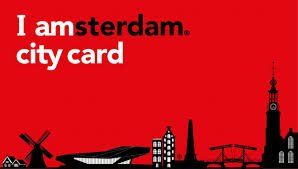
Amsterdam City Card

How can I get a mortgage?

Investment account
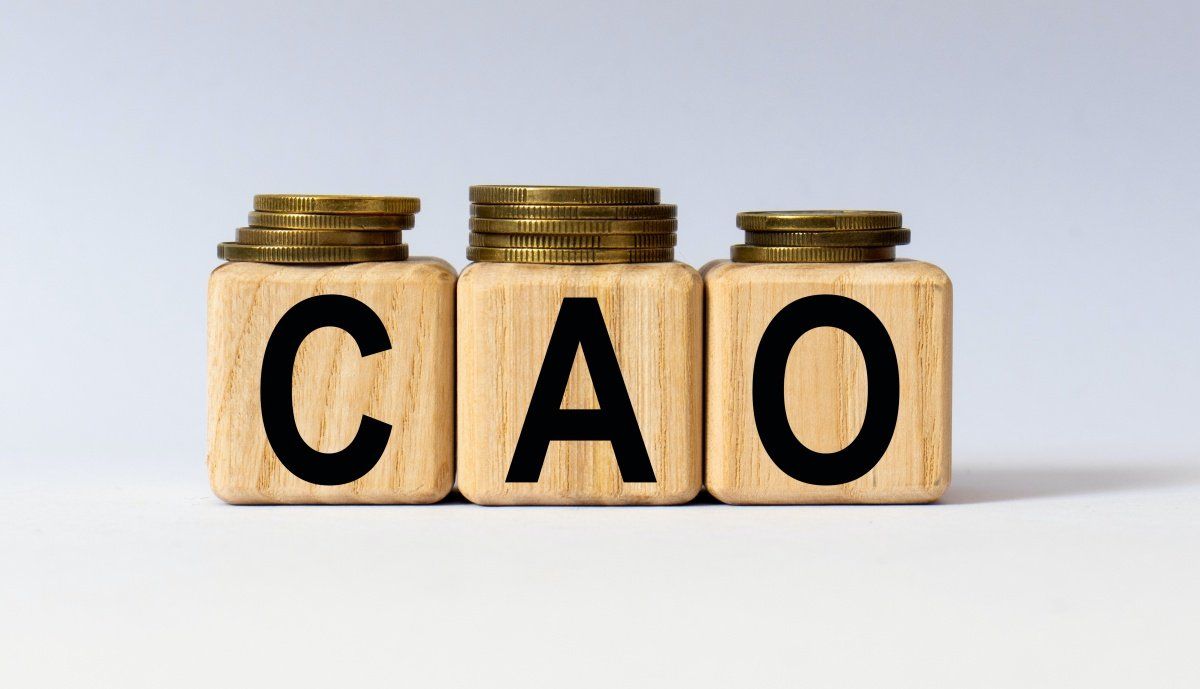
Taking sick leave at work

How to find a job

Take out liability insurance
Lijst van diensten.
Can you not find your answer on our website? Send us your question.
Do you need help to find the right company for your needs? We offer you help!
Find here an easy overview of all the articles and more.
Sign up for newsletter
Thank you, we keep in touch!
About Expat-Netherlands.nl
Terms of service
Privacy statement

All Rights Reserved |
Expat-Netherlands.nl © 2022-2024

Travel allowance and work from home allowance

Travel allowance
Do your employees travel to work by car or public transport? Then you can often reimburse the costs incurred by these employees as commuting expenses. You can also pay an allowance for business travel. You can choose to reimburse travel expenses per trip or to pay a fixed travel allowance.
Is an employee entitled to a travel allowance?
Nowhere in the law is stated that an employee is entitled to a travel allowance. The employee is only entitled to it if there are agreements about this in the collective labour agreement, employment contract or company regulations. If that is the case, you must reimburse travel expenses as an employer.
What is the maximum travel allowance that I can pay as an employer?
It is important to know whether the employee uses his own transport, uses public transport or is carpooling with colleagues.
Tax-free reimbursement of own transport
If the employee travels to work by his own transportation, you can reimburse a maximum of € 0.19 per kilometer without having to withhold taxes. For this maximum kilometerage it does not matter which means of transport the employee uses.
If you pay a higher travel allowance, the portion in excess of € 0.19 per kilometer is considered wages. You must then deduct payroll taxes over the excess.
Tax-free reimbursement of public transport
If the employee makes use of public transport to travel to work you can choose between a tax-free reimbursement of
- the actual travel costs incurred;
- the number of kilometers traveled up to a maximum of € 0.19 per kilometer.
Mileage compensation for carpooling
If you organize carpooling, you may reimburse the driver € 0.19 per kilometer. This includes the kilometers that the driver makes a detour. If the employee organizes the carpooling himself with a colleague, then each colleague or employee can receive an allowance of € 0.19 per kilometer. The kilometers that the employee has to make a detour for this purpose can’t be reimbursed free of tax in that case.
Fixed travel allowance
In the past, it was possible for the employer to pay a fixed travel allowance if employees would have to travel 60% or more of the time to come to work. But since the corona crisis, a large proportion of people work from home. As a result, many companies found themselves in a bind with their fixed travel allowances. The government then stipulated that work-from-home days could also be considered travel days for determining commuting expenses. This regulation was abolished as of January 1, 2022.
Since January 1, 2022, employers are only allowed to reimburse actual travel expenses. Of course, as an employer you may still decide how much travel expenses you give an employee, but only the actual costs incurred can be reimbursed untaxed.
Employers must therefore determine whether their employees meet the conditions for a fixed travel allowance in 2022.
The statutory scheme says that an employee who travels to a fixed place of work on at least 128 days in a calendar year may receive reimbursement based on 214 days. This applies to five travel days. If an employee travels fewer days, the allowance must be calculated on a pro rata basis.
Example William travels to work four days per week in 2022. The one-way travel distance is 20 kilometers, or 40 kilometers back and forth. William must travel to work for at least 128 x 4/5 = 103 days. He meets this requirement. He travels four days x 52 weeks = 208 days to work. These 208 days do not include vacations and short-term sickness. But it is expected that William will certainly travel to work for at least 103 days in 2022. William can be paid a travel allowance for 214 x 4/5 = 172 days in 2022. This leads to an allowance of 172 x 40 km x € 0.19 / 12 months = € 108.93 per month.
Work from home allowance
As of January 1, 2022, the new targeted exemption for working from home is in effect. You can pay your employees an allowance of € 2 per day worked from home. From 1 January 2023 this amount will be increased to € 2.15. The allowance can be paid to compensate for the additional costs incurred by the employee due to working from home. These additional costs include:
- water and electricity consumption;
- coffee and tea;
- toilet paper.
Such an allowance does not take up any of your free space under the work-related costs scheme. Would you like to give your employees a higher allowance? Then the excess falls in the tax-free margin. Remember to designate the allowance as a final taxable component.
If you make agreements regarding the travel/work from home pattern of your employee you can give a fixed (monthly) allowance. With these agreements you make it plausible on how many days the employee works at home and/or travels. These written agreements are formless. This means that it is not necessary to keep records or make periodic declarations.
To determine the compensation, you can use the so-called 128/214-day rule (statutory regulation). This regulation means that if your employee travels at least 128 days per year to the fixed workplace, the travel allowance on an annual basis may be calculated as if your employee travels on 214 working days. This formula already takes into account occasional working from home, sickness and vacations.
It is permitted to occasionally deviate from agreements made without an adjustment. This follows from the 128-day rule. If there are structural changes, then the allowances must be reconsidered.
As of 2022, the work from home and travel allowance must both be calculated pro-rata based on the number of travel days and work from home days (instead of previously working days).
Example 1 In 2022, William works two days at home and travels to the office three days. The one-way travel distance is 20 kilometers, so 40 kilometers back and forth. The 128 days test means that William must work at least 128 x 2/5 = 52 days at home for a fixed allowance. And in addition, on at least 77 days must travel to the office. An allowance for working from home is possible for 214 x 2/5 = 86 days. This leads to an allowance of 86 x € 2 /12 months = € 14.33 per month. In addition, a travel allowance is possible for 214 x 3/5 = 129 x (40 km x € 0.19) / 12 months= € 81.70 per month.
Example 2 Bouchra works 4 days a week. She works 2 days at home and 2 days at the office (single journey distance 12 km.) Travel allowance: 214 x 2/5 = 86 days x (24 km x € 0.19) / 12 months = € 32.68 per month Work from home allowance: 214 x 2/5 = 86 days x € 2 / 12 months = € 14.33 per month
Combination of working from home and travelling to the office on the same day
The exemption for a work from home allowance of up to € 2 per day (2023: € 2.15) can also be applied if an employee only works from home for part of the day. However, you cannot give a work from home allowance for the days when you also pay a travel allowance for commuting. This means that if an employee works at home for part of the day and the other part at the regular workplace, you can only apply one of the exemptions:
- either you reimburse the commuting expenses;
- or you pay a work from home allowance.
You decide in consultation with your employees which allowance is paid. The turning point is around five kilometers one way.
It is, however, permitted to give both a travel allowance and a work from home allowance on a day on which part of the work is done from home and the employee travels to a place other than the fixed workplace. This practical interpretation makes it possible to give an employee a travel allowance on a claim basis for a business trip from home. Think for example of a customer visit. The fixed work from home allowance does not need to be adjusted for this.
Transport on behalf of the employer
If transportation is provided by the employer, then a work from home allowance is only possible if no use is made of that transportation on the work from home day. Transport on behalf of the employer includes a company car or bicycle and the reimbursement, provision or issue of a public transport season ticket.
Allowance for furnishing a home office
For the furnishing of a home office, an employer may already give a tax-free allowance. The costs of an office chair, a computer or telephone can be reimbursed by the employer via other targeted exemptions under the work-related costs scheme.
Use of private PC and internet
On top of the work from home allowance, as an employer you may also pay an allowance if the employee uses his own computer and internet subscription for work. The condition is that the use is necessary. Necessary in this case means that the employee can’t perform his work properly without this facility. This means that the employee needs and uses the internet subscription for work.
If the internet at your employee’s home meets the conditions, then the reimbursement of the subscription costs is specifically exempt. You can also apply the targeted exemption if the employee pays a personal contribution for private use. An allowance for internet use proportional to the number of homeworking days does not conflict with the necessity criterion.
Has your employee purchased a 3-in-1 package (internet, landline telephone and television) from a provider? If so, you determine the portion of the invoice that is for the internet connection. If necessary, you can check what the provider charges for a separate internet subscription. That part can be specifically exempted from reimbursement.
Changes for 2023
Increase of tax-free travel allowance.
There will probably be an increase in the current tax-free travel allowance. However, the exact increase is unknown at the time of writing. Based on the reserved amount, an increase in the tax-free travel allowance of 1 to 1.5 cents as of 2023 should be possible. The exact details are still being worked out.
Increase of tax-free work from home allowance
As of January 1, 2023, the tax-free work from home allowance will be indexed on the basis of the table correction factor. This table correction factor takes inflation into account. It is expected that the table correction factor will amount to 1.063, which means that the tax-free work from home allowance as of 2023 will amount to € 2.15 per work from home day.
So there are a number of options for untaxed reimbursement of your employers’ travel expenses. You can also pay an allowance for home working days. Make proper agreements on this with your employees so that it is clear what choices are being made. Also ensure that the calculation of the tax-free allowance is correct. This can be complicated, especially if travel days and homeworking days coincide.
It is expected that the tax-free amounts will be increased in 2023. However, this increase will not be able to keep up with inflation. But it is important to adjust the calculations with the changed amounts, if desired of course. Because paying a travel allowance or home-work allowance is not a legal obligation. And therefore also not the amount thereof. This is only different if agreements have been made about this in the collective labour agreement or the employment contract. But this does not always automatically include any increase in the untaxed amount.
Similar Posts
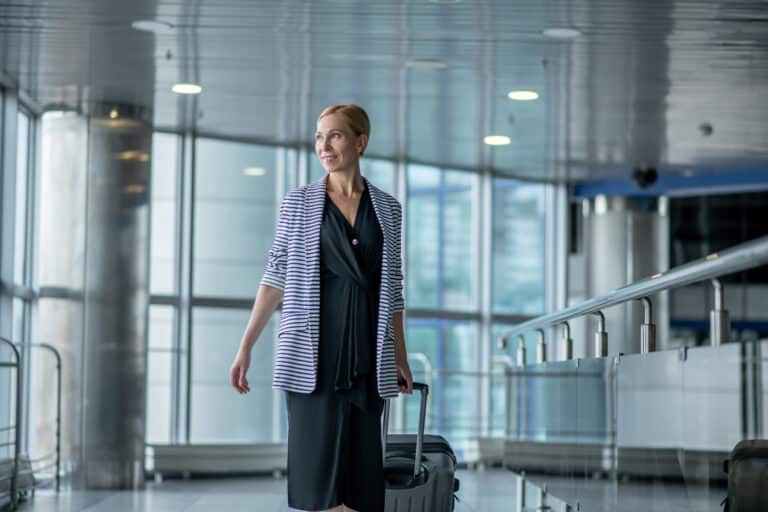

Reimbursement of expenses for domestic and foreign business trips 2022
The employer can reimburse expenses occurred during a domestic or foreign business trip tax free based on the rate lists for civil servants.

What does an employee cost? Calculate the employer costs
Employer costs are the costs that an employer pays (in addition to the salary) for his employees.
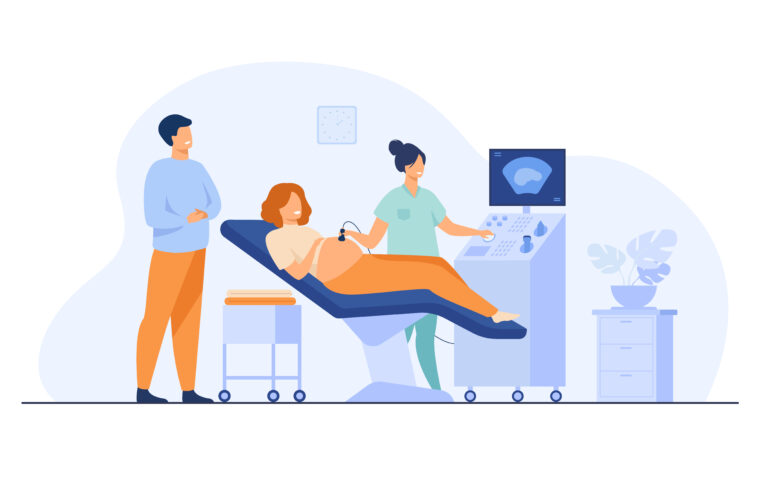
Your employee is pregnant: maternity leave and maternity benefit
What are the consequences for you as an employer and what needs to be arranged?
Is your employee entitled to maternity leave and a maternity allowance?
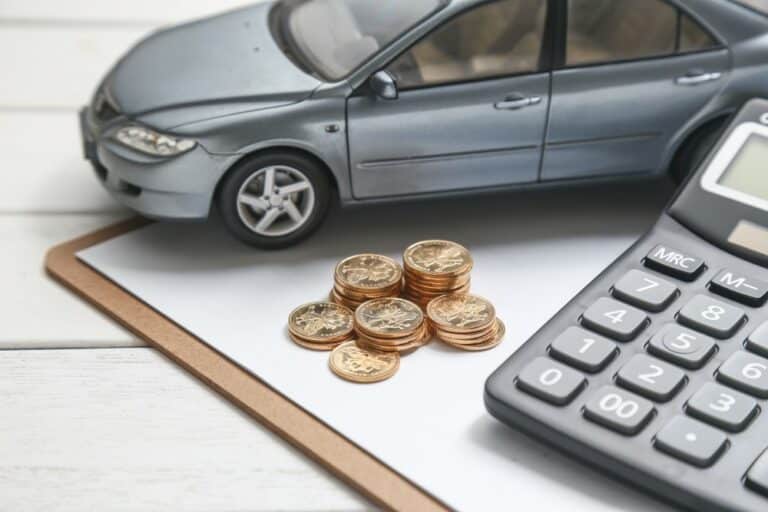
Transport and travel costs of your employees in the Netherlands: tax rules
Information about the tax rules around the reimbursements and benefits in kind for trips your employee makes for work. You will also find information about the provision of means of transport, public transport tickets and parking facilities.
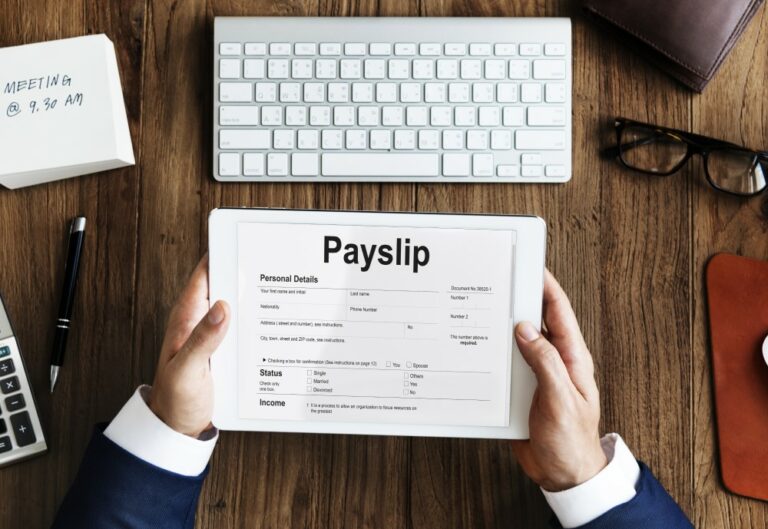
Application of anonymous rate in the payroll administration
This guide tells you when to apply the anonymous rate and how to process this in the payroll tax return
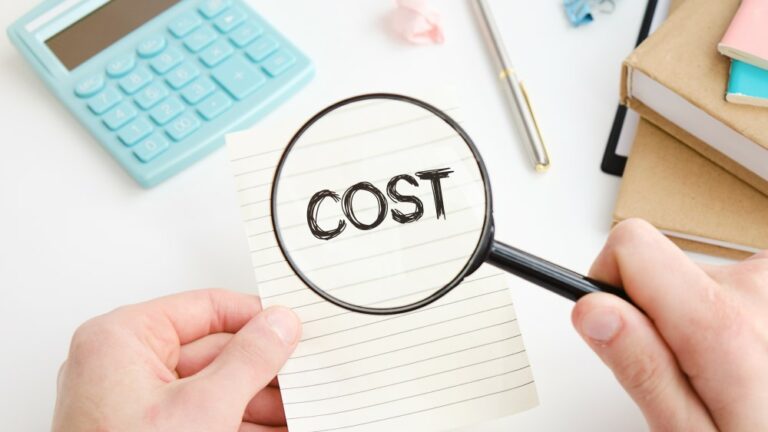
The work-related costs scheme (WKR)
The work-related costs scheme is a tax regulation under which the allowances and benefits in kind that employers give to their employees can remain tax-free to a certain extent.
Leave a Reply Cancel reply
Your email address will not be published. Required fields are marked *
- Announcements
- Research funding
Reimbursement of expenses for business trips in the Netherlands
Are you travelling on business in the Netherlands? Then your travel and subsistence expenses will be reimbursed. Before making a business trip, arrange permission from your manager.
Travel with public transport unless this is unfeasible, in which case you may use your own vehicle, a taxi or a rental car, but do discuss this beforehand with your manager.
If you receive a travel allowance from a party other than the University, this will be deducted from the sum for which you may claim.
The following travel expenses will be reimbursed:
- If you travel with public transport, your actual costs will be reimbursed. If you travel by train, you may travel first class and will be reimbursed for this.
- If you have permission to travel with your own car, you will be reimbursed € 0.23 per kilometre.
- If you have permission to travel by taxi or rental car, the full cost will be reimbursed. When travelling by rental car, do not forget to keep a logbook of your kilometres and submit this as proof for your claim.
- If you have a disabled badge, you will be reimbursed € 0.23 per kilometre and any parking fees.
- If your business trip lasts longer than four hours and takes you further than one kilometre from your workplace, you are entitled to an accommodation expenses allowance: for instance, for meals and small expenses. There are fixed reimbursement rates for these costs and you must meet a number of conditions.
Fixed reimbursement rates
The allowance will be paid out to you tax-free, irrespective of the amount of your actual expenses, provided you meet the following conditions:
- You must have actually incurred these expenses for lunch, evening meals, lodging and breakfast in an establishment intended for that purpose.
- To qualify for the lunch and dinner allowance, your business trip must include lunchtime (between 12:00 and 14:00 hrs) and dinnertime (between 18:00 and 21:00 hrs). You do not have to submit receipts for these expenses.
- You are entitled to the daytime component if your business trip lasts at least 4 hours per full 24 hrs period.
- You are entitled to the evening, lodging and breakfast components only if your business trip includes an overnight stay.
- If your business trip lasts longer than eight days, you will be reimbursed for the full evening component for the first eight days, following which your allowance will be halved
If you regularly take the same route on University business, use a route card (in Dutch: trajectkaart ) or the like to reduce costs.
Submit your expense claims
- You can submit your travel and accommodation expenses via Self Service.
- Log on to Remote Workplace .
- Choose SAP Self Service.
- Submit your claim as soon as possible but no more than three months after the end of the calendar year.
- Ensure that you have an electronic copy of your proof or purchase, for instance an original receipt, before you submit your claim.
- Before making a business trip, arrange permission from your manager. Your activity holder and budget holder must approve your claim.
Expense claims if you are not employed by the University >>
Human Resources
- Working hours
- Business travel
- CAO and regulations
- Individual Choices Model
- Terms of employment in short
- Registration and contract
- Practical issues
- International staff
- University doctor
- Working with a functional limitation
- Mental fitness
- Work pressure
- Leiden Healthy University
- Self Service
- Confidential counsellors and complaints committees
- PSSC Service Point
- Service Centre International Staff
- Immigration and formalities
- Social life and settling in
- Taxes and social security
- Getting around
- Frequently asked questions
- Career guidance and mobility
- Teacher development
- PhD candidates and postdocs
- Code of conduct
- Recruitment and selection
- Diversity and inclusiveness
- P&D interviews
- Continuing education rules and regulations
- Confidential counsellors
- Staff ombuds officer
- Complaints committees
- Collective insurances
- Unfit for work
- Unemployment
Finance & Procurement
- Expense claims
- Other allowances
- Invoice payments
- Sales invoices, credit notes and receiving payments
- Payments without an invoice (by bank transfer, VVV gift card or cash), taxable remuneration (IB47)
- Payments to research participants
- Conferences and seminars
- Framework contracts
- Procurement procedures
- Service portal
- Research equipment
- Real estate
- University finances
- Financial planning and control cycles
- Regulations and guidelines
- Working for third parties
- Financial project management
- Department Financial Economic Affairs
- FSSC Service point
- Controllers
- University Procurement
- Audit department
- Synchronising mail and calendar
- Printing and copying
- Software and online tools
- Forgotten your password
- Activating and managing your account
- Additional authentication
- Applying for a guest/external account
- Office 365 and OneDrive
- Microsoft Teams
- Remote workspace
- Secure online workspace from home
- Application forms
- Helpdesks and contact
- Maintenance and incidents
- Research data
- IT and education > go to Education
- General Data Protection Regulation (GDPR)
- Archive management
- Personal data
- Working securely online
Buildings & Facilities
- Workplace in the office
- Reserving workstations
- Requesting facilities for working from home
- Laboratories
- Environmental awareness at work
- Post and Transport
- Breastfeeding and quiet rooms
- Reserving rooms
- Service desks and receptions
- Management and maintenance
- Floor plans and house rules
- Construction projects
- Ordering catering
- Faculty Club
- Restaurants and bars
- Vending machines
- Event locations
- Reporting unsafe situations
- ERO coordinators
- Health and safety coordinators
- Servicedesk and receptions
- Blended learning
- AI in education
- Digital tools
- Tools for interactive learning
- Lecture halls and computer rooms
- Evaluation of education
- The Programme Committee
- Board of Examiners
- Site visits and accreditation
- Vision on education
- Integrity and fraud
- Student success
- Degree programmes
- Educational support units
- ICT and education
- Library and education
- Internationalisation in education
- Accessible Education
- Tests and theses
- Giving a presentation
- Remote teaching
- Reserving equipment
- Referral options
- Unacceptable behaviour
- Training and workshops for staff
- Training and workshops for students
- Online self-help for students
- Bringing students together
- Background information on student well-being
- CROHO and teacher's academy
- Comenius programme
- Teaching innovation
- Contact about internationalisation
- Arrange partnership and exchange
- Sign up student and staff
- Safety abroad and crisis management
- Preparing for a trip: visa and Europass
- Academic calendar
- Course and Examination Regulations
- Studying for a PhD
- PhD ceremony
- After your PhD
- Career Platform
- Confidential Counsellor and university doctor
- Becoming a postdoc
- Collaborating with renowned researchers
- Training programmes, coaching and career guidance
- Practical support for internationals
- Confidential advisers, health & safety
- Research programme data science
- Collaboration Leiden-Delft-Erasmus
- Research internationalisation
- Find and prepare
- Write your proposal
- Submit your proposal
- Grant awarded
- Help and support
- Data storage
- Datamanagement
- Research software
- Sharing and sending files
- Publication tools
- Research from home
- Roadmap and examples
- Research visitations
- Academic integrity
- Ethics committees
- Publishing your doctoral dissertation
- Scholarly Publications and LUCRIS
- Open Access
- ORCID iD and DOI
- Leiden University Press
Communications & marketing
- Communication tools
- Media relations
- Science communication
- Bachelor recruitement
- Master recruitment
- Recruitment international students
- Alumni relations
- Alumni database
- House style
- Writing and translating
- Use of images
- Making a presentation
- Website and web editorial team
- Social Media
- Conferences and Events
- Working securely: tips
- Privacy and security policy documents
- Learning platform
- Incidents and dangerous situations
- Safety in a lab
- Working with hazardous substances
- Emergency Response Officer
- Risk Inventory and Evaluation
Select a different organisation
- Dual careers
- Volunteering
- ACCESS Features
- ACCESS Magazine
- Counselling
- Childbirth Courses
- First Aid Courses
- Testimonials
- Disclaimer and privacy policy
- Thank you for registering for the Eindhoven Childbirth Course
- ACCESS Partners
- ACCESS Counsellors
- ACCESS Trainers
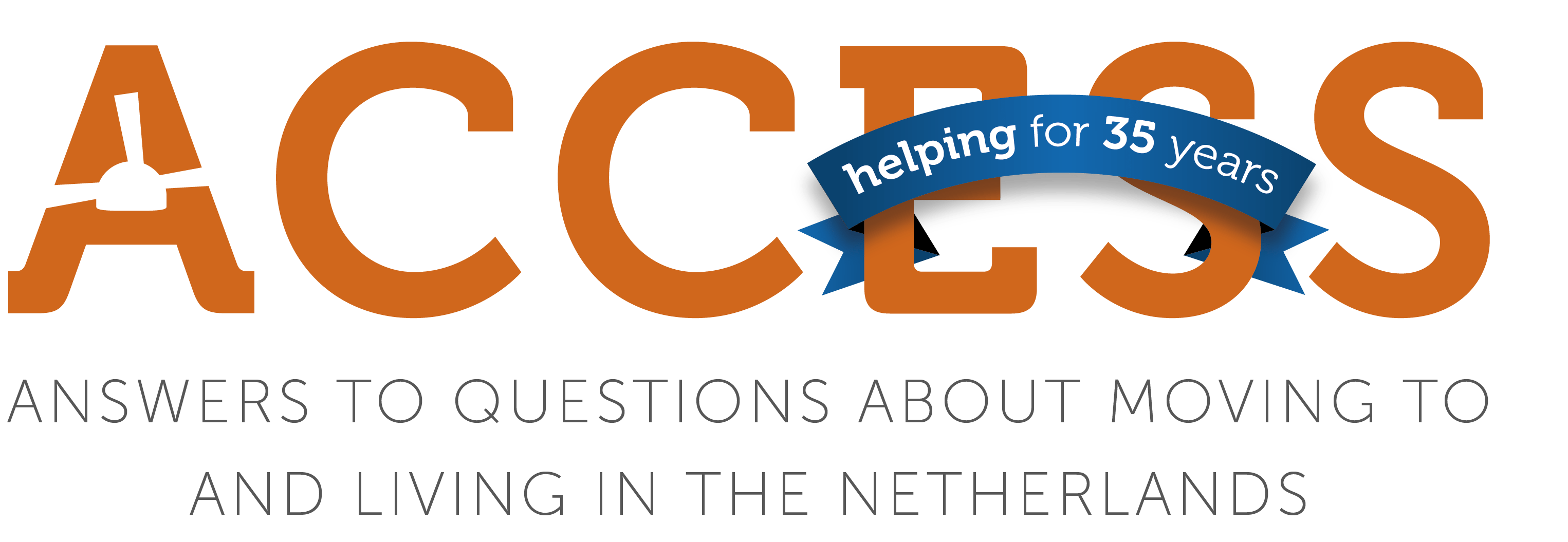
Helpdesk + 31(0)85 4000 338 helpdesk[at]access-nl.org
Visit us in:
The Hague - Amsterdam
Amstelveen - Utrecht
ACCESS NL > Dual careers in the Netherlands > Working in the Netherlands > Employment contracts > I want to know whether or not the employers in the Netherlands are obliged to pay a majority of the employee’s travel to work expenses, and if they’re not, is there a way I can claim it back in taxes?
Employment contracts
Does Dutch employment law apply to me?
Dutch employment law applies to you, even if you have moved to the Netherlands with an expatriate employment contract governed by the law of your home country or if you are working for an international organisation.
What is a CAO (collective labour agreement)?
Most companies and organisations participate in a collectieve arbeidsovereenkomst – CAO (collective labour agreement). This is a written agreement between one or more employers and one or more trade unions about the labour conditions for all employees, such as wages, payment for extra work, working hours, probation period, pension, education and childcare.
The provisions in a CAO are often more favourable than those prescribed by law, but they may not contradict the law.
How do I know that my contract is in accordance with Dutch law?
You can also use the free legal services of Het Juridisch Loket for questions about your employment contract.
Which information is usually included in an employment contract?
You can find information about what should be included in an employment contract here
It is important to carefully check all the conditions of your employment contract before signing.
It is not compulsory, but most companies in the Netherlands reimburse employee’s costs for commuting to work. In the collectieve arbeidsovereenkomst – CAO (collective labour agreement), company regulations or in your work contract, you can find the applicable rules.
If you take your own car or bicycle to work, your employer can reimburse a maximum amount per kilometre.These costs are not deductible from your income for tax purposes. You can find the actual amounts here (Dutch only)
Travel costs are tax deductible if you receive insufficient or no reimbursement from your employer under the following conditions:
- you use public transport to and from work with both addresses being in the Netherlands
- you travel more than 10 km. one way
- you have an openbaar vervoer verklaring – OV-verklaring (transportation provider declaration) or reisverklaring ( from your employer) as proof that you have used public transport. Bear in mind that you should keep any paper/digital tickets that you have used to travel to and from work
If you have a personal OV chipkaart , you can find an overview of all your trips and the costs at the website of the OV chipcard . If you are unsure of what situation applies to you, visit the Belastingdienst (tax office) website for more information on where to apply for the openbaar vervoer verklaring or reisverklaring . This will depend on the ticket you use (Dutch only)
Please note that you cannot claim a deduction if the employer bought the tickets for you. If your travel expenses have partially been covered by your employer, you can only claim the part that has not been covered.
What are my legal rights and obligations when I have an on-call contract?
An oproepkracht (on-call employee) only comes to work when called upon to do so. The rules that apply depend on the type of contract. For instance, there are rules with on payment when no work is available, minimum hours guarantee or minimum wages for hours worked.
More information about on-call contracts is available here .
What are the rules for dismissal?
A temporary employment contract ends on an agreed date or during a trial period. In both cases, there is no dismissal procedure.
If you have a permanent contract, an employer must have good reasons to dismiss you when you have a permanent contract. More information about the rules for dismissal is available here .
What are my legal rights and obligations when I have a temporary employment contract?
A temporary contract has a start date and an end date. The contract will end on the agreed date, though the employer is required to inform you in writing if the contract will be renewed at least one month before the end date. We strongly advise you to ensure that you get a contract in writing, although a verbal agreement is also valid in the Netherlands. The employer is obliged to inform you in writing of the main items covered in the contract within one month after the start of the contract. Within legal limits, both employers and employees are free to decide what will be covered by the contract.
You can find more information about temporary contracts here
What are my legal rights and obligations when I have a permanent employment contract?
The most important difference between a temporary and a permanent contract is that a permanent contract has no end date. This means there is no indication of any intention to limit the duration of the contract, such as “for the duration of the project”. Hence, and unlike temporary contracts, there is no mention of an end date in a permanent contract. Also the “term of notice” will be different for a permanent contract, since your legal position is different. The differences for terminating a permanent labour contract are explained below:
- A permanent employment contract can be ended by one of the parties. The legal terms of notice need to be respected.
- The rules are different for employers and employees. The employee has the legal right to end the contract without a procedure but he or she must respect the legal and agreed period, which is usually a minimum of one month’s notice.
- Both employer and employee have the right to go to court and ask to end the permanent labour contract.
What are my legal rights and obligations when I have an employment contract with an employment agency?
The contract with an uitzendbureau (employment agency) differs fundamentally from a contract with an employer. The employment agency is your legal employer while you work in a company that hires you from the employment agency. In particular, your protection against dismissal during a certain temporary period is not regulated. On the other hand, both you and the company you are working for can terminate your employment at any given time during the agreed employment period. Uitzendbureaus have their own CAO (Collective Labour Agreement).
There is a Wet allocatie arbeidskrachten door intermediairs (Allocation of Workers by Intermediaries Act) that regulates issues related to uitzendbureaus . For example:
- Uitzendbureaus are prohibited from deducting any amount from an employee’s salary for the service of providing temporary work.
- Uitzendbureaus must inform temporary workers in writing about the working conditions at the place of work in advance.
Please note that a werving- en selectiebureau (employment/recruitment agency) is not the same as an uitzendbureau. If a placement is via an uitzendbureau , then the person works via the agency for the duration of the assignment, whereas with recruitment, you work for the company straight away, and the agency receives a fee.
I have some legal issues with my employment contract. Where can I get a legal assistance?
If you cannot clarify any legal issues you may have regarding your contract with your employer, you can seek information and advice at het Juridisch Loket (the legal advice office) free of charge. If they conclude that you need professional legal assistance, they may be able to give you some suggestions. Their website lists 30 offices throughout the country as well as contact details. It is possible to send an email by filling in the online form (form is in Dutch only). Sometimes contact by email is not possible. In this case, it is suggested to make a phone call.
It is good to know that individual labour disputes in the private sector are generally dealt with by a single court judge. Individual labour disputes in the public sector are regulated by administrative law and dealt with by an administrative court. Labour law is an intricate and complex field subject to changes. It is advisable to consult legal professionals when issues or disputes arise.
What are the official public holidays in the Netherlands?
Whether you are free from work on public holidays depends on the agreements made between employers and employees in the CAO (collaborative labour agreement) or those in your employment contract.
The Netherlands has one national holiday:
- Koningsdag (King’s Birthday) on 27 April
In addition, there are a number of generally-observed public holidays:
- Nieuwjaarsdag (New Year’s Day)
- Tweede Paasdag (Easter Monday)
- Hemelvaartsdag (Ascension Day)
- Pinksteren (Whit Monday)
- Eerste Kerstdag (Christmas Day)
- Tweede Kerstdag (Boxing Day, also known as Second Christmas Day)
What vacations am I entitled to in the Netherlands?
Every employee in the Netherlands is entitled to vacation with full pay. The right to vacation days is built up during the course of a year. The minimum number of vacation days to which you are entitled after one year is four times the agreed number of days you work each week (usually 4 x 5 = 20 days). If you have not yet been employed for one year by an employer, your vacation days will be calculated proportionately.
You will receive full pay during your vacation. In addition, you are entitled to a minimum vacation allowance. The vacation allowance is payable by your employer and is paid at least once a year (usually in May). Your employer must specify the amount of your vacation allowance on payment in your contract.. The vacation allowance amounts to a minimum 8% of your income in money (basic wage, bonuses and allowances).
The CAO (collaborative labour agreement) might include other agreements about the number of vacation days, the payment, and the amount of the vacation allowance.
Legal vacation entitlements can be saved up to six months. Any extra vacation entitlements (e.g. if you are entitled to more than the minimum number of vacation days) can be saved up to five years. It is also possible for an employee to exchange vacation days for money from the employer, but neither the employer nor the employee can force the other into such an arrangement.
Which possibilities are available for special leave?
Employees in the Netherlands are not only entitled to fully-paid vacation days, but also to several kinds of special leave such as:
- Emergency leave
- Parental leave
- Adoption leave
- Paternity leave
- Pregnancy and maternity leave
- Extraordinary leave
- Short-term compassionate leave
- Long-term compassionate leave
More information about special leave is available here .
I have heard employees receive a holiday allowance. How much do I get and when?
In the Netherlands, all employees receive at least 8% holiday allowance over their gross income during 12 months. It is common to pay it every year in May, but another payment date is possible too. If you have worked extra hours and got paid for this, the holiday allowance is also calculated over this income.
What should I do when I am ill and unable to work?
When you are ill and unable to work, you need to inform your manager as soon as possible. Every organisation has its own rules regarding when you need to inform your employer. Sometimes you need to call the administration. You don’t have to give any medical information. The company doctor ( bedrijfsarts) will invite you to see him if your illness lasts longer than just a few days or a few weeks. He will also advise your employer if you can do your work or if there are any limitations to take into account (e.g. fewer hours, no physically heavy work). If you would like to discuss anything with the bedrijfsarts when you are not ill, you can make an appointment. Sometimes employers don’t like this, but you have the legal right to see a bedrijfsarts.
Your manager will probably ask you if there is any work that needs urgently looked after by a colleague and when you expect to be back at work. When your illness lasts longer than 6 weeks your employer must get in touch with you to make a reintegration plan. This plan has to be finished six weeks after you became ill.
Finding a job in the Netherlands
View the FAQ’s
Work permits in the Netherlands
Unemployment in the Netherlands
Dutch pension system
Dutch business culture
Related Partners
Women’s Business Initiative International
Volunteer The Hague (PEP)
AWC (American Woman’s Club)
Connecting Women
Toastmasters of The Hague


The tax deduction for travel expenses/commuting (reisaftrek)
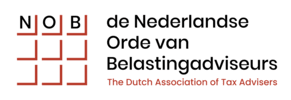.png)
Tax deduction table for travel expenses/ commuting
The only expenses which can be deducted in the annual income tax return in Box 1 relating to income from current employment, are qualifying expenses for commuting per public transport. For deduction itis required that the employee travels at least one day per week from the place of residence or regular place of stay to the place where the employment is exercised.
Traveling at least 40 days per year, qualifies as traveling once per week. The travel must be done by public transport and evidenced by a so-called public transport statement (in Dutch: 'openbaarvervoerverklaring').
The expenses must be reduced with travel cost reimbursements received from the employer.
If the employee travels at least 4 days per week, the deduction for travel expenses/commuting can be calculated as follows (2023):
If the employee travels 3, 2 or 1 day(s) per week, the deduction is respectively 75%, 50% or 25% of the above mentioned annual amounts if the commuting distance is less than 90 kilometers. If the commuting distance is more than 90 kilometers , the deduction equals 26 cents per kilometer multiplied with the travel kilometers and days on which the employee travels, but no more than € 2,354 per year in 2023 (€ 2,214 for 2022).
Frederieke den Hartog
Director/ senior consultant - payroll & expat practice, our services, payroll & hr services, global mobility services, related news.
Don’t miss out on our regular updates on international taxation.
- Bank details
- Corporate Banking
- For entrepreneurs
- Private individuals
- Immigration
- Consultations
- Order status
- machtiging activation
- How to order a service?
- Knowledge base
- Ask a question
- Glossary of terms
- Calculators
- Business offers
- Comments and suggestions
Who is entitled to a tax deduction for travel in public transport?
In the Netherlands, reimbursement by employers of travel expenses of employees is widely practiced. However, not always. And if you pay your own fare for ...
Widely practiced in the Netherlands reimbursement employers of travel expenses of employees. However, not always. And if you pay for your own travel to work on public transport? In this case, you can enter travel expenses on your income tax return and receive a tax deduction - reisaftrek.
Conditions for receiving a travel allowance
- the distance from home to work in one direction by public transport is more than 10 kilometers;
- you commute to work more than one day a week or commute to the same place of work for at least 40 days in a calendar year;
- You can confirm trips using the methods below.
How do I verify travel to work on public transport?
- If you have issued subscription for travel - for example, OV-jaarkaart - then the transport company itself transfers data about your trips to the tax office, your intervention is not needed . Check on the website of your transport company whether this data is transmitted.
- If data is not being transferred, you need to request a certificate from the transport company (openbaarvervoerverklaring or OV-verklaring). This can be done through your "My OV-chip" account on ov-chipkaart.nl .
- If you cannot get OV-verklaring because you are traveling on separate tickets, for example, then you need to get a travel certificate from your employer (reisverklaring). It should indicate:
- your name and address;
- the name and address of your employer;
- the number of days per week you commute to work by public transport.
How much travel expenses can be deducted?
The amount you can deduct depends on:
- one-way distance from home to work by public transport;
- the number of days per week you commute to work.
The size of the deduction for travel in public transport for 2023
* In this case, the calculation is used: 0,26 euros per kilometer one way, multiplied by the number of days on which trips were made to work in 2023. The deduction is a maximum of 2354 euros.
The size of the deduction for travel in public transport for 2022
*In this case, the calculation is used: 0,24 euros per kilometer one way, multiplied by the number of days on which trips were made to work in 2022. The deduction is a maximum of 2214 euros.
To ensure that you receive all your subsidies and tax deductions, file a declaration via Nalog.nl!
In order not to miss new and useful materials, subscribe to our social networks:
- What will change in education in 2023
- Residential property tax could rise by 9,1%
Latest news
- 10.05.2024 Life will be made easier for low-income residents of the Netherlands
- 09.05.2024 I'm a businessman. How important is it to meet the hour criterion?
- 08.05.2024 Congratulations on the Feast of the Ascension of the Lord!
- 08.05.2024 Fines for violating traffic rules have increased again!
- 07.05.2024 I'm a businessman! Do I need a separate business account?

Open a BV in the Netherlands
Turnkey company registration.
Turnkey immigration and adaptation

Consultation

Calculate the exact cost of services
What do you think of this site? *
The purpose of your appeal?
Do not enter any personal information such as name, social security number, or phone number. We do not respond to questions, comments and complaints that come through this form.

Are travel costs deductible?
Incurred travel costs they might be deductible, i travel to work by public transport..
If you travel to work by public transport, it could be the case that you are entitled to a deductible. If you fulfill the requirements, your travel costs are deductible.
Requirements
- You do not receive compensation (or a really low amount);
- Your journey with public travel is more than 10km;
- You travel once a week or at minimum 40 days a year;
- You travel back and forth within 24 hours;
- You have a public transport statement or a travel statement.
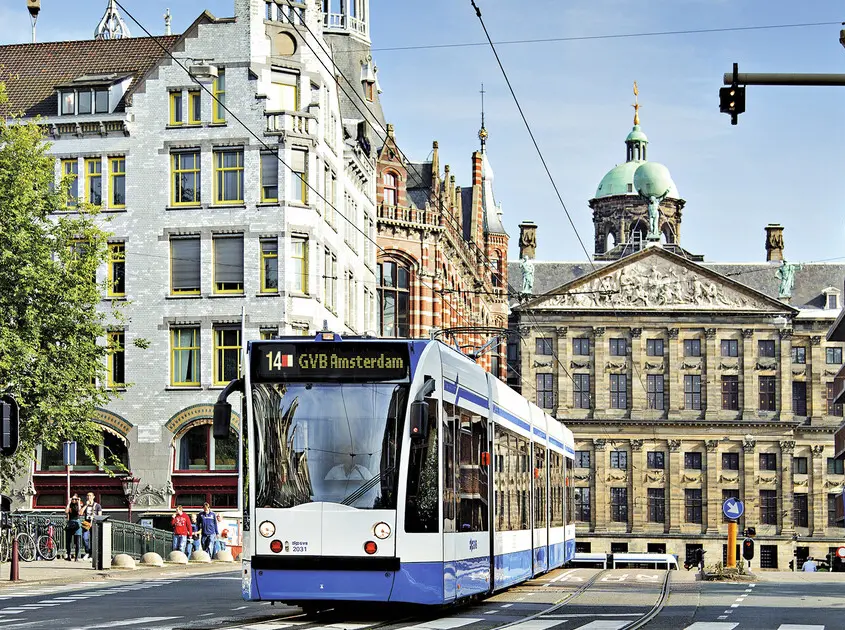
- You travel with your personal OV-chipcard.
- You can prove that you made the journeys yourself. For example, by providing a declaration overview, which you can get from your online OV-chipcard environment.
Be aware! Your travel history is only saved for 18 months.
Requesting a public transport statement or a travel statement
If you travel with a monthly or annual ticket, you can request such a statement at the public transport company. Do you travel by another ticket? In that case, you can request a travel statement from your employer.
What amount is deductible?
The deductible amount depends on how often you travel and on how long the journeys are. The table mentioned below shows which amount is deductible in your situation.
Does it mention a * ? In that case, the deductible amount is € 0.28 per kilometer of one way of the journey x the number of days you have traveled in 2024.
The maximum travel deduction is €2.185.
I travel to work using my own transport.
Do you travel to your work using your own car or motorcycle, for example? In that case, you are not allowed to deduct travel costs. However, your employer is allowed to give you tax-free compensation per kilometer. In 2024, this amounts up to €0.23 per kilometer.
We are happy to help!
The TaxSavers is happy to help you get the most out of the deductible items with your annual tax return or provisional assessment. A provisional assessment ensures that you receive a monthly refund from the tax authorities.
Do you have questions regarding deductible travel costs or other tax-related matters? F ill in our contact form or give us a call on +31 (0)20 – 2170120 .
Contact form:
Fill in our contact form and we will get in touch!
WhatsApp us:

+31 (0)20-2170120
The TaxSavers
Amsterdamseweg 71A 1182GP Amstelveen E. [email protected] T. +31 20 – 2170120
For employers
Frequently Asked Questions

Office hours
Monday to Friday (9am – 6pm)
BTW-registration NL859458301B01 (VAT) Kvk-registration: 73318752 (Chamber of Commerce)
General terms and conditions
Privacy statement
Official partners
- International Newcomers Amsterdam
- International Welcome Centre Utrecht Region
- The Hague International Centre
- International Centre Leiden Region
- International Welcome Center North
- Holland Expat Center South
- Food Valley Wageningen
Applying for reimbursement of travel expenses to attend appointments at the UWV
Have you been invited to attend an appointment at the Uitvoeringsinstituut Werknemersverzekeringen – UWV (Employee Insurance Agency) ? You may then be eligible for reimbursement of your travel expenses. Do you need a carer to accompany you to the appointment? Your carer may then also be eligible for a reimbursement.
Last updated on 27 December 2021
Lees deze informatie in het Nederlands
Eligibility for reimbursement of travel expenses by the UWV
To be eligible for travel expenses from the UWV, you must meet certain conditions. For example, you must have been invited to attend an appointment by the UWV. Please consult the UWV website to find out about the reimbursement of travel expenses (in Dutch).
Applying for reimbursement of travel expenses
You can apply for the reimbursement of your travel expenses during your appointment at the UWV. If you would like the travel expenses of your carer to be reimbursed, you must also apply to the UWV for the reimbursement of your carer’s travel expenses (in Dutch). You must do this before you attend your appointment.
Laws and regulations (in Dutch)
Wet arbeidsongeschiktheidsvoorziening jonggehandicapten
Wet op de arbeidsongeschiktheidsverzekering
Wet werk en inkomen naar arbeidsvermogen
Beleidsregel kostenvergoeding UWV
Found what you were looking for?
- CES Centre for Educational Support (CES)
- CFM Campus & Facility Management (CFM)
- FIN Finance (FIN)
- GA General Affairs (GA)
- HR Human Resources (HR)
- LISA Library, ICT Services & Archive (LISA)
- MC Marketing & Communication (MC)
- SBD Strategic Business Development (SBD)
- SP Strategy & Policy (SP)
- Employment & personal development
- Terms of employment
Business travel
Travel for and during work
When you are required to travel in or outside the Netherlands because of your position, this qualifies as a business trip. Commuter traffic and travel on campus is not considered business trips by the UT. Temporary employment elsewhere in the Netherlands or abroad does not qualify as a business trip.
- Information about traveling from and to work
- Regulations on declaring expenses University of Twente
Authorisation
A business trip is undertaken in consultation with the budget holder. If your business trip has been approved, the UT will pay for the necessary costs for travel and accommodation. More information on the conditions to be met is available in the Regulations on declaring expenses University of Twente. Costs are declared via Unit4, see the explanation below under ' practical matters travel expenses '.
Domestic business travel
Public transport is used for domestic business travel. For this travel, by train bus, tram or metro, you may use a NS Business Card of the UT.
The NS-BC is a public transportation (OV) -chip card UT employees can use for business travel by public transport (metro, train, bus, etc.) within the Netherlands and in some cases commuter travel.
- Travel by check in/out
- All forms of public transport (tram, metro, train and bus) and all carriers in the Netherlands are connected to the card
- Use of OV bike
- Commuter travel by public transport provided by the UT is integrated into the NS Business Card (NS-BC)
- International train travel using NS-BC portal Mijn NS Zakelijk
- No discount percentage on the standard card (discount via seasonal tickets can be (de)activated per month)
- Valid for 5 years
Each unit (faculty, department or service centre) made a choice to provide either personal cards or use department cards .
For online bookings with a personal card, go to "How do you log in to Mijn NS Zakelijk?"
Before traveling with the business card, read the terms of use:
For domestic business trips by public transport, staff members will make use of the NS Business Card. It will not be possible to claim expenses for other tickets in case of a domestic business trip.
There are two types of NS Business Card: the personal card and the department card .
The personal card is issued in the name of/is administered by the staff member whose name the card is issued. This person may only use the NS-BC. The unit (faculty, department) determines to whom a personal card will be made available.
The department card is issued in the name of/is administered by a unit. Staff members who do not receive a personal card, make use of a department card provided by the unit for domestic business trips.
By receiving a personal card or by signing the register of a department card, the staff member agrees to the conditions for using the NS-BC.
- As a rule, the NS-BC can only be used for UT domestic business trips by public transport. Use of the card for other purposes is only allowed in the situation described under 2.
- A personal NS-BC to which a public transport seasonal ticket, purchased by the UT, has been linked, may be used for commuting by the staff member. Use of the card for other, personal purposes is only allowed if and in so far as the seasonal ticket linked to the NS-BC allows for this without any further costs being incurred.
- The staff member may only use the NS-BC as a ticket for public transport trips and store a bicycle in an NS bicycle shed at the railway station and to hire an OV-bike. With the permission of the superior prior to the business trip, the staff member is allowed to also use the NS-BC for an (OV-)taxi ride from the station to their destination and to use the Q-park P+R parks. The use of any other services of the NS-BC is not permitted.
- The staff member is not allowed to lend out the NS-BC to third parties or to have third parties use the card.
- If used correctly, the staff member will not be charged any costs for using the NS-BC.
- If the NS charges the UT an adjusted rate because a staff member has not used the NS-BC correctly , the unit may recover the costs associated with this incorrect use from the staff member concerned.
- If a staff member makes improper use of the NS-BC, the UT will settle all costs associated with this improper use with the payments to be made to the staff member concerned (salary, allowances, reimbursements and such).
- In the event of improper use of the NS-BC, the UT may take disciplinary measures.
Theft, loss or damage
- The staff member shall immediately report the theft or loss of the NS Business Card to the contact person of the unit (see 'help and contact' below).
- If a staff member does not immediately report the theft or loss of the card, the unit may recover the costs associated with the theft or loss from the staff member concerned.
- Replacement of the personal NS Business Card in case of theft, loss or damage, runs via the contact person of the unit.
Handing in the NS Business Card
- The staff member to whom a personal NS-BC has been made available shall hand in the card to the contact person of the unit upon the termination of the employment, no later than on the last working day.
- The staff member who for a business trip has made use of the department card shall hand in the NS-BC as soon as possible after return to the secretary’s office where the card was collected.
- The staff member to whom a personal NS Business Card has been made available but who does not wish to make (continued) use of the card, can hand in the card with the contact person of the unit (see 'help and contact' below).
- In case of improper use of the NS-BC, it will be withdrawn.
- If the staff member hands in the personal NS-BC or if it is withdrawn, they will be given proof of submission/return.
For each unit a contact is appointed. This person can provide you with further information about how the cards are distributed, where you can find the card manager for your department, or what Projectnumber is connected to which card. In case of malfunction, theft or loss, you need to report to this person.
For questions about traveling or using the NS Business Card, you can contact NS customer services; by phone 030 - 300 11 11, email [email protected] .
In case of prolonged absence of the contact, you should report to Secretariaat HR . This also applies to UT employees who aren’t employed by any of the above mentioned units.
Personal NS-BC
Your personal NS-BC is automatically activated and can be used in train, bus, tram, metro by checking in and out. If you want to change the workorder-number for a trip, switch classes, view your trips, etc. you need to create a Mijn NS Zakelijk account . A more detailed instruction can be downloaded below;
- Mijn NS Zakelijk (English)
The NS Business Card is for business travel by public transport only (and in some cases commuter travel). The NS-BC is NOT to be used for personal purposes.*
Information needed at first log-in
- NS-BC card number. The card number is visible on the NS-BC (16 digits)
- accompanying PIN code (default last 4 digits of the card number)
- Go to www.ns.nl/mijnnszakelijk On the right side of the screen right of the picture of the new card, click here.
- Fill out your @utwente.nl e-mail address and confirm. You will now receive an e-mail with a link to activate Mijn NS Zakelijk.
- After confirming you address and creating an account, you will receive an email which provides an email through which you have to activate your account. In this email you have to click on hier or copy the URL in the address bar of your browser.
- After clicking the link in the confirmation email, your browser will open a webpage. On this page, you need to enter a password (twice, to make sure you entered it correctly) and click opslaan (save/submit).
*A personal NS Business Card to which a public transport seasonal ticket, purchased by the UT, has been linked, may be used for commuting. Use of the card for other, personal purposes is only allowed if and in so far as the seasonal ticket linked to the NS Business Card allows for this without any further costs being incurred. If you are entitled to a seasonal ticket provided by the UT, you have been notified by HR.
The NS Business Card is for business travel by public transport only (and in some cases commuter travel). The NS-BC is NOT to be used for personal purposes.*
For domestic business trips by public transport, staff members will make use of the NS. Businesscard. It will not be possible to claim expenses for other tickets in case of a domestic business trip.
There are two types of NS. Businesscard: the personal card and the department card.
The personal card is issued in the name of/is administered by the staff member in whose name the card is issued. The NS. Business Card may only be used by this person. The unit (faculty, department) determines to whom a personal card will be made available.
By receiving a personal card or by signing the register of a department card, the staff member agrees to the conditions for using the NS. Business Card.
- As a rule, the NS. Business Card can only be used for UT domestic business trips by public transport. Use of the card for other purposes is only allowed in the situation described under 2.
- A personal NS. Business Card to which a public transport seasonal ticket, purchased by the UT, has been linked, may be used for commuting by the staff member. Use of the card for other, personal purposes is only allowed if and in so far as the seasonal ticket linked to the NS. Business Card allows for this without any further costs being incurred.
- The staff member may only use the NS. Business Card as a ticket for trips by public transport and for storing a bicycle in an NS. bicycle shed at the railway station. If the superior has given permission prior to the business trip, the staff member is allowed to use the NS. Business Card also for a (train)taxi ride from the station to his or her destination and for using the Q-Park P+R car parks. The use of any other services of the NS. Business Card is not allowed.
- The staff member is not allowed to lend out the NS. Business Card to third parties or to have third parties use the NS. Business Card.
- If used correctly, the staff member will not be charged any costs for using the NS. Business Card.
- If the NS charges the UT an adjusted rate because a staff member has not used the NS. Business Card correctly , the unit may recover the costs associated with this incorrect use from the staff member concerned.
- If a staff member makes improper use of the NS. Business Card, the UT will settle all costs associated with this improper use with the payments to be made to the staff member concerned (salary, allowances, reimbursements and such).
- Improper use of the NS. Business Card is considered as neglect of duty in the sense of the Disciplinary Measures Regulation UT.
- If a staff member does not immediately report the theft or loss of the NS Business Card, the unit may recover the costs associated with the theft or loss from the staff member concerned.
Handing in the NS. Business Card
- The staff member to whom a personal NS. Business Card has been made available, shall hand in the Card to the contact person of the unit upon termination of the employment, no later than on the last working day.
- The staff member who for a business trip has made use of the department card, shall hand in the NS. Business Card as soon as possible after return to the secretary’s office where the Card was collected.
- The staff member to whom a personal NS. Business Card has been made available but who does not wish to make (continued) use of the Card, can hand in the card with the contact person of the unit (see 'help and contact' below).
- In case of improper use of the NS. Business Card, it will be withdrawn.
- If the staff member hands in the personal NS. Business Card of if it is withdrawn, he or she will be given proof of submission/return
Travel via check in and out
You can travel with your NS-BC by bus, tram, train and metro simply using “check in, check out”.
Travel with discount
In general your NS-BC comes without a season ticket or discount. For each card, your contact person can (de-)activate a season ticket. You can check if any discount is activated in the Mijn NS Zakelijk portal . If foresee a increase in your business travel, you can ask the contact person for your department to activate a season ticket.
You can view and alter your travel details in the Mijn NS Zakelijk portal.
To get access you have to create an account at the login pag e. If you forgot your password you can also request a new one at this page.
If you have trouble logging onto the portal or you lost all your login details, you should contact NS Customer service, phone +31 (0) 30 3001111, email [email protected]
If you forgot your card, you should check the FAQ to find out what to do? If you have any questions about the NS-BC or what to do when your card was lost or stolen, you should contact the NS-BC contact within your department. .
More information on travelling with your NS-BC: www.ns.nl/en/business/home . If you have any questions you can contact NS Customer service by phone 030 300 11 11 or email [email protected] .
Your taxi trip can be booked online by logging in via Mijn NS Zakelijk. You can also book by telephone no later than half an hour beforehand via 0900 204 2000 (€0.10 per minute). Before booking, make sure you have permission to take a taxi.
The taxi doesn’t wait for more than 5 minutes. You need to book at least 30 minutes in advance. You can change or cancell up to 30 minutes before departure. If you want to travel at night between 1.00 and 7.00, you need to book at least 24 hours in advance.
* Only when used for business travel
With your card you can park your bike at 36 NS Bicycle parkings. After you have had your NS-Business Card scanned in and a barcode has been affixed to your bicycle, you can put it in the supervised storage area.
NS Stations with parking facilities accessible with your NS-BC
Alkmaar, Alphen a/d Rijn, Amersfoort, Amsterdam Centraal (2 stallingen), Arnhem, Assen, Breda, Delft, Den Haag Centraal, Den Haag HS, Dordrecht, Ede Wageningen Zuidzijde, Eindhoven (2 stallingen), Gouda Noordzijde, Haarlem, 's-Hertogenbosch, Hilversum, Hoorn, Leeuwarden, Leiden (2 stallingen), Maastricht, Meppel, Nijmegen, Roermond, Rotterdam Centraal (2 stallingen), Tilburg, Utrecht (Oost- en Westzijde), Venlo, Weesp, Woerden, Zwolle.
Pilot parking at Station Enschede
In Enschede it should be possible to park and retrieve your bike using your NS-BC during opening hours. More information is on the NS Bicycle website.
You have free access to the lounges at Amsterdam Centraal, Rotterdam Centraal, Schiphol and Breda stations.
When you hold your NS-Business Card Dal up to the card reader as you drive in or out, the barrier will open. In Gouda and Sittard, you receive a ticket that you can pay for at the car park ticket machine using your NS-Business Card. Note that you are only allowed to use these services if you have permission from your manager.
If you want to use the taxi services you this has to be pre-approved by your manager.
Booking a taxi from the station using your NS-Business Card is very easy. There is no need for you any longer to pay it first, keep the receipts and then declare the expenses. Your taxi trip can be booked online by logging in using your card number and PIN code via Mijn NS Zakelijk . If you book a taxi trip using a departmental card, please also state your name in the comments field. You can also book by telephone no later than half an hour beforehand via 0900 204 2000 (€0.10 per minute).
- The taxi will wait for 5 minutes at the agreed upon spot
- A (train)taxi to the station can be booked online or by phone no later than half an hour beforehand. A taxi at the station can only be booked through the taxi stand on the spot.
- You need permission from your manager to use the taxi service.
GREENWHEELS CAR SERVICE
It is NOT ALLOWED to use the Greenwheels car service. Munsterhuis is the preferred car rental for UT.
It is permitted to use the OV bicycle for business travel.
Department NS-BC
In the administrator section in your ' Mijn NS Zakelijk ' account you can manage view transactions, view and change card details, and book trips.
SHORT SUMMARY
- Before their business travel, employees pick up the card at the administrator.
- The administrator makes sure the employee fills out the register before they receive a card.
- This information includes workorder number, travel details, date of pick up, and the employees signature
- After the journey the administrator collects the card and signs the register upon receiving the card
- Afterwards the administrator checks if the standard workorder number needs to be changed and an alternative workorder number needs to be added as kenmerk
In most cases the administration for the department card will fall to the secretariat or office. Department cards are added to the administrator section of your Mijn NS Zakelijk account by the UT administrator/contact.
In case you don’t have a Mijn NS Zakelijk account, you can create one by going to www.ns.nl/mijnnszakelijk (and following the instructions on screen). The UT contact/administrator can add the department cards to your account, under the administrator section.
MIJN NS ZAKELIJK ACCOUNT
When an workorder number (NS calls this “kenmerk”) needs to be changed, go to kenmerk aan reis toevoegen in your account. This gives you an overview of all transactions (“transacties”). Two days after a trip it is possible to view a transaction and alter an workorder number.
The next invoice (.csv) will show all characteristics. There is also an option to add a label (either personal, commuter or business) as a characteristic to a transaction. For a department card this is not necessary as it will always be business travel.
On your home screen there are also buttons for Taxi, Greenwheels and Fyra. These are options employees aren’t allowed to use (apart from the taxi services, permitted after approval upfront).
After a trip you have the option to change the workorder number via the transaction overview in Mijn NS Zakelijk. To do this, go to Kenmerk aan reis toevoegen on you home screen. Select a card to view all transactions made on the card. Note: for train trips it takes two days for transactions to be added to the overview. To add an workorder number, go to a specific transaction and select kenmerk toevoegen , enter the new workorder number (only numbers) and save ( opslaan) .
MORE INFORMATION
If you encounter problems with creating an account or booking a trip, you can contact NS Customer Service directly: phone +31(0) 30-300 11 11 or e-mail [email protected] .
You can also contact your unit’s contact person or the UT contact.
The Department Card is for business travel by public transport only. The department card is NOT to be used for personal purpose and/or commuter travel.
Go to your card administrator at least one day before you have to travel by train (usually your office/ secretariat ). If you don’t know where you can to pick up a card, go to the contact of your unit.
Fill out and sign the register to get a department card. Make sure you enter the right workorder number. After your trip hand the card back to the card administrator as soon as possible.
The NS-BC can be used in trains, busses, metro and trams by checking in and out.
- Make sure to always check in and out. If you forgot to check out, go back to a train station (on the same day) and check out.
- Always inform your card administrator in case the workorder number needs to be altered. When needed the card administrator has the option to change the number afterwards.
More information on how to travel with the NS-BC can be found on the NS website .
If your card has a defect, is stolen or you need a new one? Contact the contact your unit’s contact person.
For questions on how to travel with the NS-BC, you need to contact the NS directly: phone +31 (0)30 300 11 11 or e-mail: [email protected] .
For questions on the distribution or in case of theft/loss contact your unit’s contact person.
In Enschede it should be possible to park and retrieve your bike using your NS-BC during opening hours.
More information the NS Bicycle Website.
NS HISPEED LOUNGE
You have free access to the lounges at Amsterdam Centraal, Rotterdam Centraal, Schiphol and Breda stations. www.nsinternational.com/nl/stations/nsinternational-lounge
- The taxi will wait for 5 minutes at the agreed-upon spot
It is NOT ALLOWED to use the Greenwheels car service. Munsterhuis is the preferred car rental for the UT.
Your department or unit (faculty, department, service centre) has made a selection based on past business travel patterns. It is possible that your department or unit opts to use personalized cards, or (non personal) department cards exclusively. Employees who are not issued with a personal NS Business Card can use the department card, available through the secretarys office or card administrator, for their business train travels. Employees who are entitled to commuter travel by public transport issued by the UT will be provided with a personal business card (with season ticket).
The current NS Business Card (1 april 2014) is valid for 5 years. You will receive notification about the next stage before your card expires.
As of 1 March 2012, all UT employees can use either their personal or department NS Business Card for business travel by public transport within the Netherlands. From 1 March 2012, it will no longer be possible to claim expenses for other train tickets/cards used for business travel.
Each card has been linked to a specific workorder number. All travel costs are charged to this workorder number. If you travel using check in/out, you consult your travel history afterward (usually visible after 2 days) with Mijn NS Zakelijk . Go to "Kenmerk (aan reis) toevoegen" and specify the preferred workorder number in the annotation field. If an workorder number has to be changed permanently (because you switched projects/departments), you should contact your unit's contact person.
Note. Make sure to change the workorder number in the same calendar month the trip occurred. Enter only the preferred workorder number and no additional text (and no hypen). Any additional text will make it illegible for the SAP programme to read.
For an overview of your travel details of a personal card, you can create a personal Mijn NS Zakelijk account . Travel data will be visible as of two days after journey. For an overview of travel details for a department card, you can ask your card holder to access the account for the department card.
A monthly invoice is sent to the University. Your NS Business Card contains a personal reference number (workorder number), which automatically charges the costs to your unit.
NS Business Cards will be distributed mid-March. Department cards will be available through secretary offices or through your unit's contact.
New employees or employees who didn't receive contract extention before 15 January (termination 1 April), but will after this date, can expect their card in April/May, and should use a department card in the mean time.
The NS Business Card can only be used for business travel by pubic transport within the Netherlands and in some cases for commuter travel (HR has informed you beforehand if you are entitled to commuter travel), NS Bicycle parking, taxi services and Q-park (with the condition that your supervisor gave persmission beforehand). The NS Business Card cannot be used for other products or services such as the OV bike or Greenwheels.
You can contact your unit's contact (see and call or email the NS customer services 030 300 11 11 (8:30 a.m. - 5 p.m.) / [email protected]
The NS contact of your unit has access to a list with workorder numbers and related card numbers.
No. It will no longer be possible to claim expenses for other railway tickets. This applies to both paper tickets and private travel passes.
All cards are activeted for check-in/out upon receipt.
You can create a personal account by going to Mijn NS Zakelijk .
For online bookings or bookings by phone, you need a pincode or PIN. The default code is the same as the last 4 digits of the 16-digit card number. When you create you MijnNS Zakelijk account you will need to change this code. To change the code, you need a MijnNS Zakelijk account. Go to MijnNS Zakelijk and create an account. For department cards your card holder usually has the pin code.
Please report theft or loss of your NS Business Card immediately to the NS contact of your unit. If you aren't able to contact this person, try another NS contact on the list.
Return your card to the NS contact of your unit. Do this before your last day.
When you don't want access to a personal card, because of the risk of loss etc., you may hand in the card at your units contact. Note. When handed in, the card will be blocked for further use.
Report this to the contact of your unit and return your card. A new card will be ordered.
The NS Business Card is valid for 5 years.
No. When you use it responsibly, using the card is free and there are no additional costs. However you should use it for business train travel only.
No. The NS terms for the Business card, do not allow this. You can however use your card for all forms of public transport e.g. metro, busses, trams.
For commuter travel, employees use season tickets or a travel subscription. As of 2014 these tickets (when issued by HR/UT) are integrated on the NS-BC.
All cards are activeted for check-in/out upon receipt. You can use it immediately in bus, tram, metro and train.
Is is no longer necessary to book trips in advance. You should use the check-in / out option at the station or in the bus/tram.
If you transfer to a different NS train, you have to check out if you change carriers. If you transfer to another carrier, you will need to check out with the one carrier and check in and out again with the next for the remainder of your trip. For example, if you are travelling from Hengelo to Arnhem via Zutphen. You need to will need to check in with Syntus at Hengelo station. In Zutphen you need to check out with Syntus first and check in with NS after for the remainder of your trip. In Arnhem you check out for NS.
No, the NS Business Card an only be used by one person at the time. Some department cards however have a discount ticket on them, which allows travel companions to use the 40% "samenreiskorting".
The NS Business Card is delivered in the class setting as it was initially ordered in. Corresponding the UT travel policy this is 1st class. You are not restricted to this default setting. If you prefer to travel in a different class, you can change your settings at MijnNS Zakelijk.
It is not allowed to use the card for personal travel purposes. The NS Business Card is to be used for business travel. Business travel involves an employee travelling outside the place of employment to carry out work activities as assigned by management. If an employee makes improper use of the card, the university is authorized to confiscate the card immediately and deduct the costs from payments owed to the employee. The employee who has made improper use of the card can also be liable to disciplinary measures. A personal NS Business Card to which a public transport seasonal ticket, purchased by the UT, has been linked, may be used for commuting by the staff member. Use of the card for other, personal purposes is only allowed if and in so far as the seasonal ticket linked to the NS Business Card allows for this without any further costs being incurred.
Yes, but only the NS bicycle parking, Q-park, P+R and taxi services. Before using the taxi services or parking, you need explicit permission from your supervisor. The NS Hispeed Lounges at het Amsterdam, Rotterdam and Schiphol train stations are also free of charge for NS-BC travellers (+1 guest), more info on the lounges NS Hispeed website .
You cannot use the NS-BC for products or services such as the OV bike, Greenwheels and NS scooter.
Yes, you can request a refund by filling out the form Geld terug bij vertraging . You can get this form at the NS service desk, Kiosk, or ask the Klantenservice 0900-202 11 63 (0,10 euro p.m.). You can also ask for a reimbursement through Mijn NS Zakelijk.
Yes, with most carriers for bus, tram and metro it is now possible to use the NS-BC.
Your only option is to purchase a (paper) ticket and contact the contact person of your unit afterwards.
No. Just like with the regular OV-chip card, it is not possible to use it for travel with more than one person at the time.
BOOKING IN ADVANCE
The taxi service is the only service that can be booked in advance. Travelling by train, bus, metro or tram takes place by checking in and out.
You can change or cancel a booking via the phone 0900-204 2000 (0,10 euro p.m.) or internet Online .
Log in on Mijn NS Zakelijk with password and email address (you need to create an account first)
Choose taxi services.
Fill out the information.
Fill in the 'kenmerk' field, if you need to change the workorder number (please only use numbers).
Note. Only taxi services can be booked in advance. Train travel (or metro, bus, tram) takes place by checking in/out.
Call 0900 - 204 2000 (0,10 euro p.m.).
You need the card number and PIN. Note. Only taxi services need / can be booked in advance.
Card number and PIN.
Workorder number (in case it differs from the default workorder number, to enter under 'kenmerk').
Travel information: departure, destination, etc.
CHECK IN / CHECK OUT
You can travel by bus, tram, metro and train by checking in and out at the station or in the tram or bus. Booking in advance is only necessary for travel by taxi.
Applying for check in / out is not necessary, it is already activated. The cards are ready to use.
If you forgot to check out, you can still check out the same day you travelled on. To check in again for a next trip, you will need to wait three minutes. If you do not check out, a correction fee (varying from €10 to €65) will be charged.
If a check-in gate or post is not working, you will need to check in at a different gate or post. If none of the check-in points at a station are working, you can buy a paper ticket. For reembursement get in touch with your unit's contact person.
If you cannot check out, please report this as soon as possible to the contact of your unit. A correction fee will then be charged to your account. Your contact person can log a request for a refund. If you have a personal card, it is also possible to request a refund through your Mijn NS Zakelijk account.
If you transfer to a different NS train, you do not need to check in or out again. If you transfer to another train carrier, you will need to check out with the NS. For the remainder of your trip will need to check in and out with the next carrier.
Always, you can use your card by checking in and out. If you transfer to a different NS train, you do not need to check in and out again. If you transfer onto a different carrier or a different form of public transport, you need to check out and check in (and afterwards out) for the remainder of your trip.
Log on at MijnNS Zakelijk . Work-Order number can be added under Kenmerk aan reis toevoegen - Managen reishistorie. Travel data is visible two days after the trip. A Work-Order number can be added afterwards when you traveled with check-in/out. If you travel by department card, you need to contact your cardholder.
- How to: Mijn NS Zakelijk (pdf)
Card administration
- Register department card
- Form renounce personal NS-BC
- Application Department card
- Cancellation department card
- Form returned NS-BC
- Form report missing/theft
My destination is not reachable by public transport
If travelling by public transport is not possible or practical, your manager can grant you permission to travel by car. In that case, you will be entitled to a tax-exempt allowance of €0.23 per kilometre. If you travel with one or more colleagues per car, only the person whose car is being used has the right to this reimbursement.
International business travel
UT stimulates travelling by train for destinations within Europe. To help you select the best mode of travel for your destination, UT has developed the Train Map: a map that shows the cities that members of UT’s community regularly travel to. These cities are divided into three categories: cities where UT considers the train the default mode of travel, cities where the train is recommended and cities where the train is considered a challenging option.
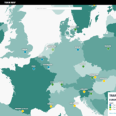
international train travel
With a personalized NS business card you can access your “Mijn NS zakelijk” (business) portal . If 'Book international travel' is visible under Immediate Booking in “Mijn NS Zakelijk”, then you can book an international train ticket using your NS-Business Card. If that is not the case, then you must first have this option activated by your faculty’s or department’s NS contact person .
Log in via Mijn NS zakelijk (choose log in as contact person) or via NS international (and log in via button top right)
1. Choose your destination
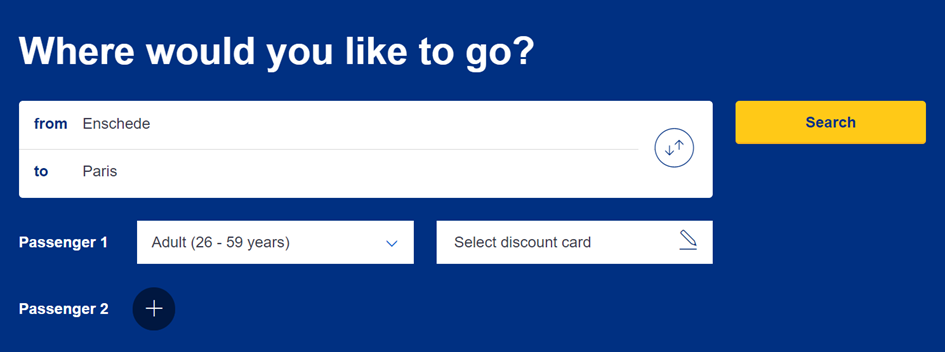
2. Choose the day of travel (outward trip), followed by choosing departure time in the morning, afternoon or evening.
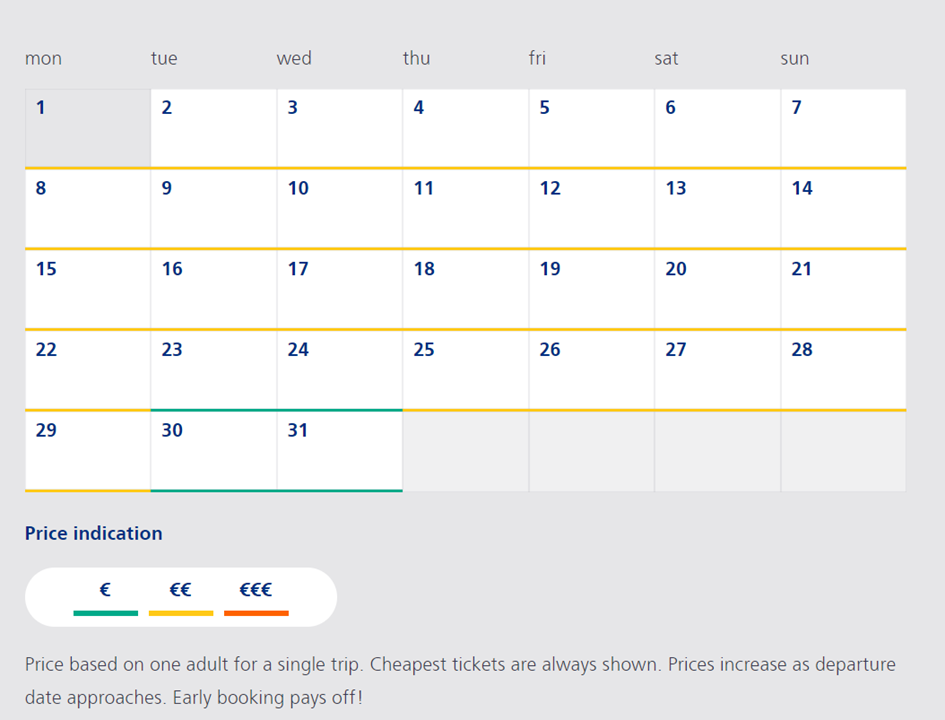
3. Choose travel class
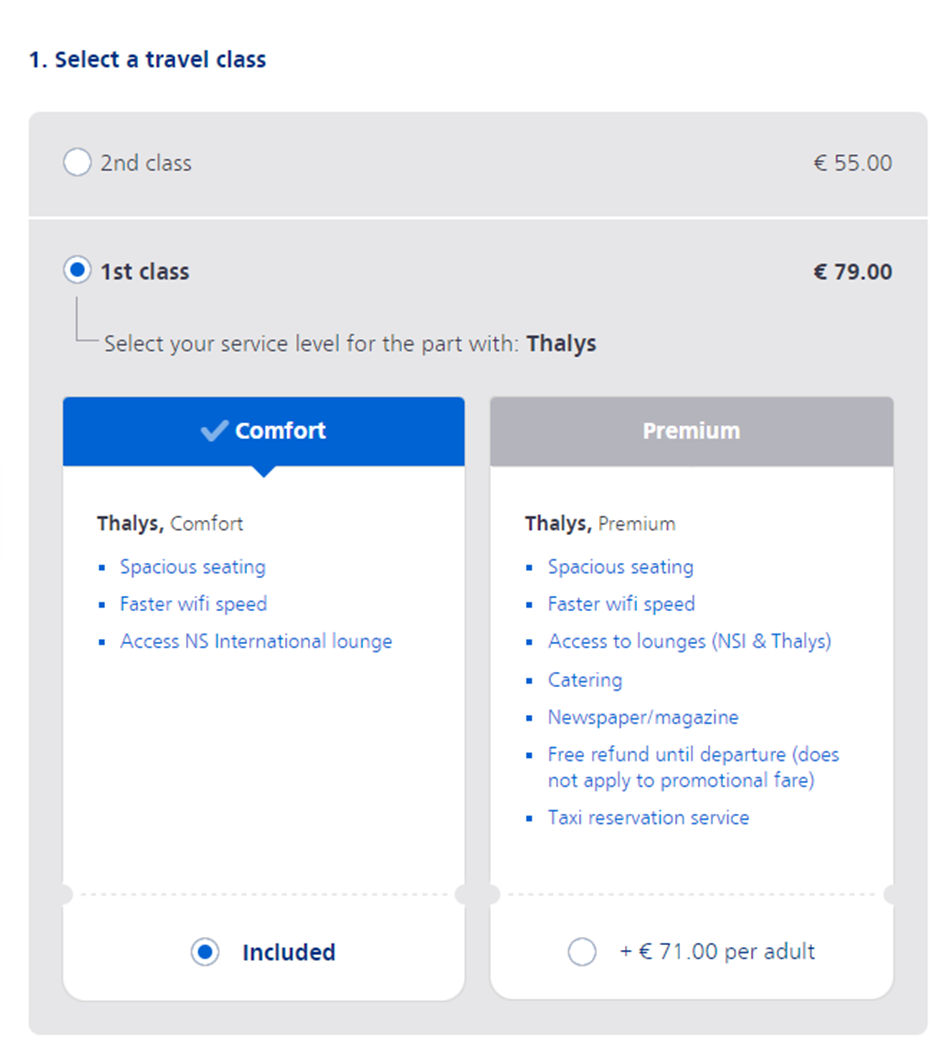
4. Choose flexibility level and seat reservation
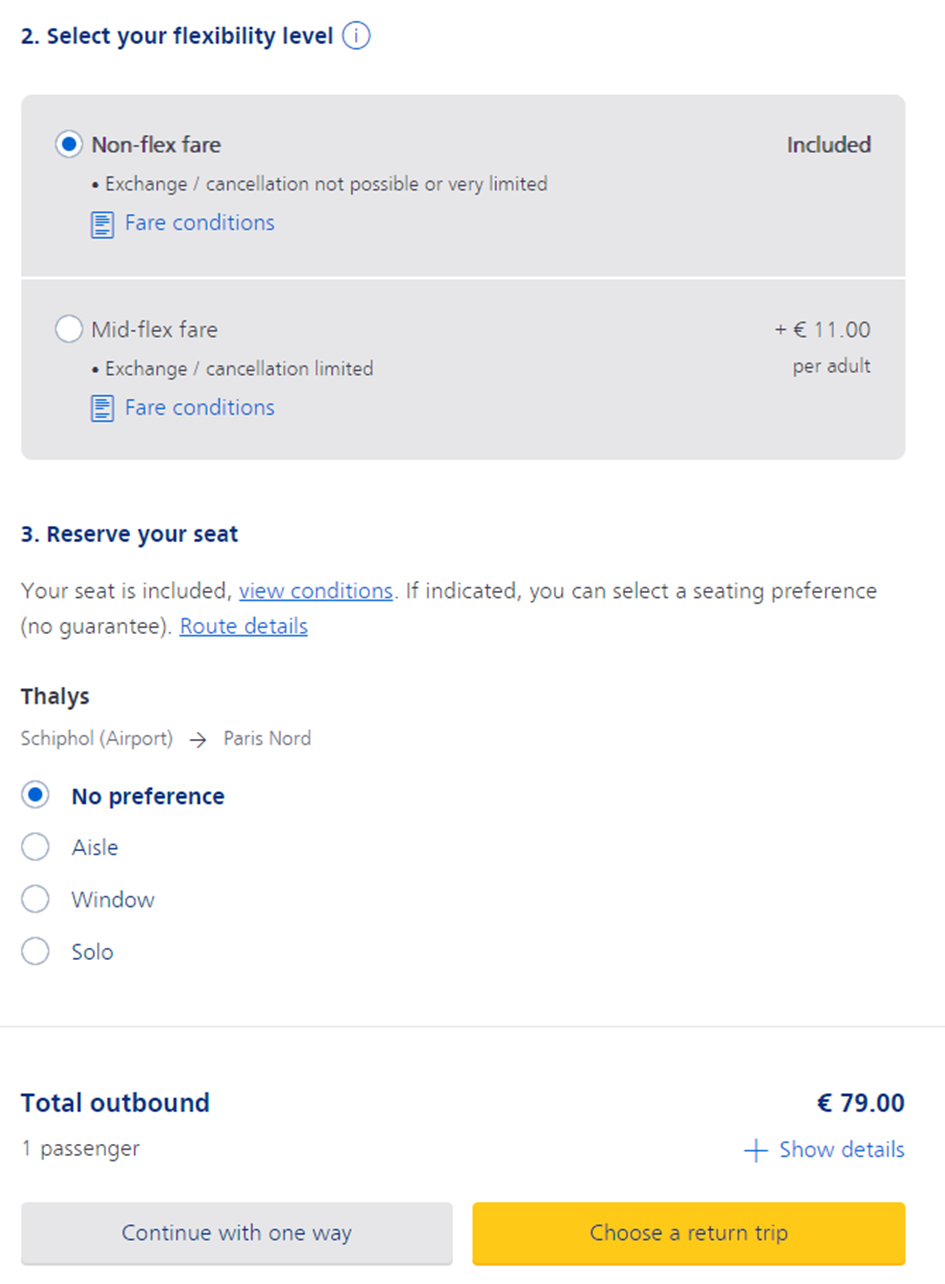
5. Then choose either continue with one way or choose your return trip and repeat the choices made above.
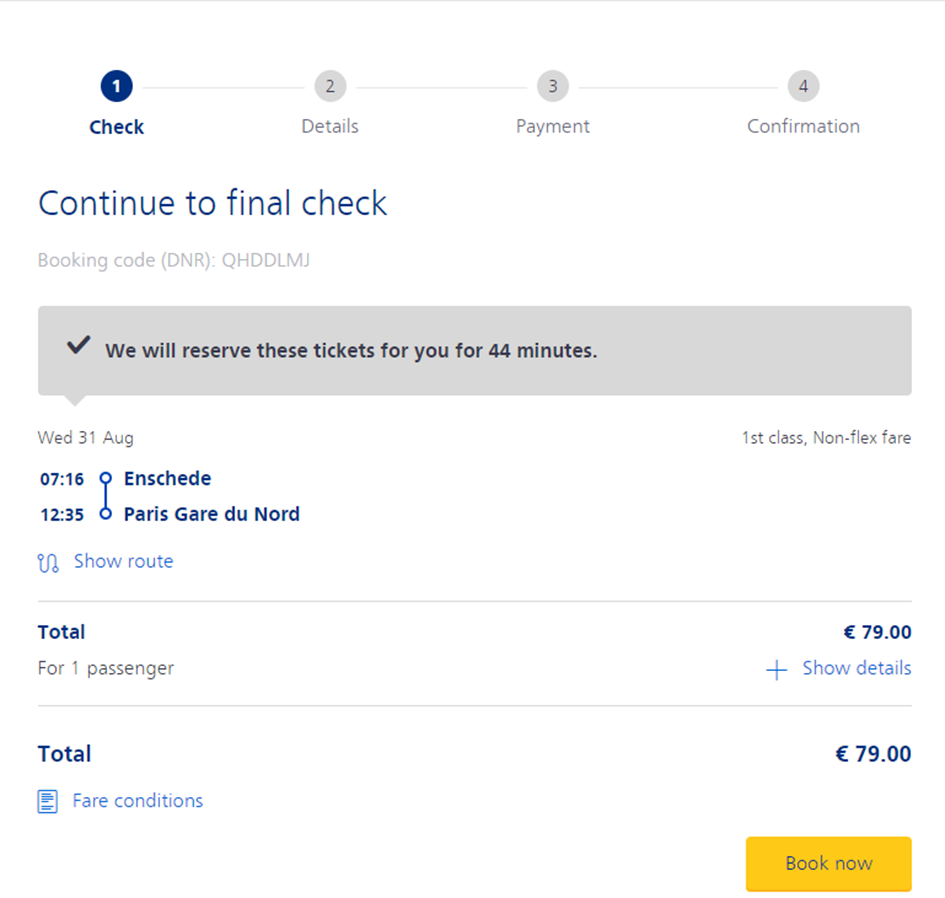
6. Click Book now to finalise the booking process.
You can see the route details and locations where you need to change trains.
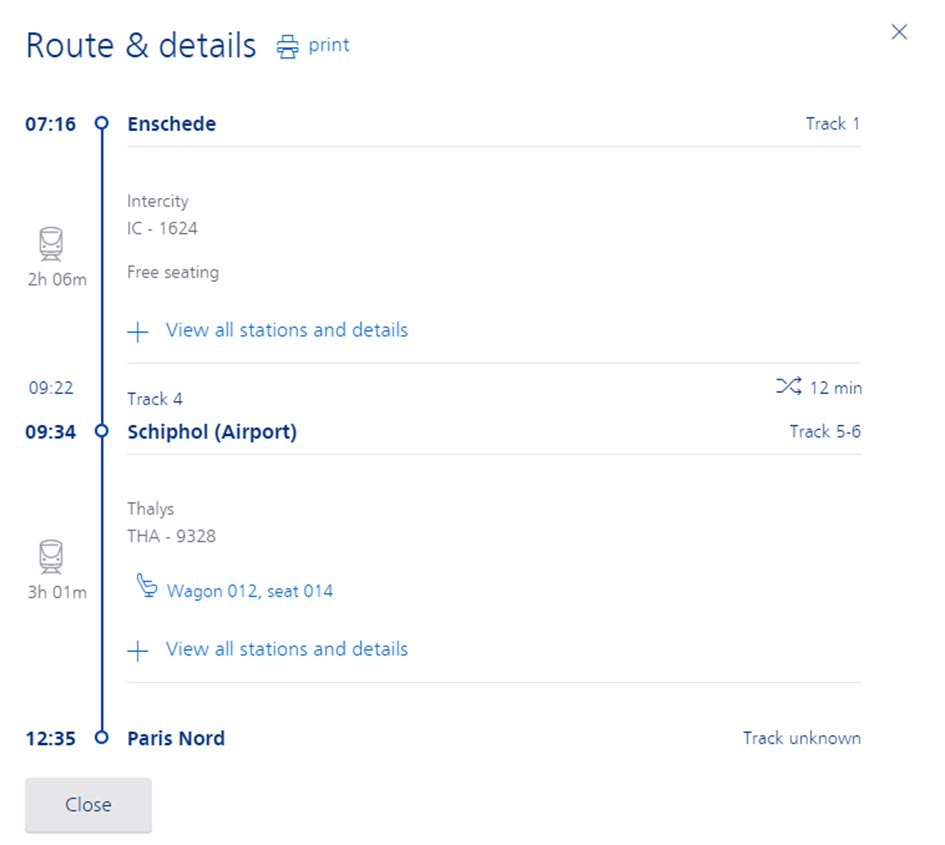
Chat function NS
NS also has a chat function on this page, in case you need some help.
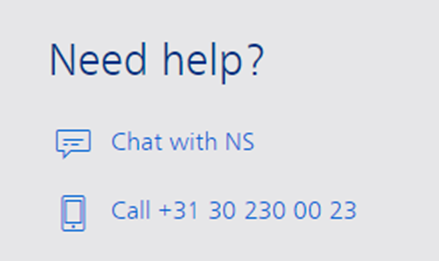
During an international journey, you only need your international train ticket to ride the train (digital or on paper). You only need to show your NS-Business Card if you are using the card to receive a discount on your international journey and/or while traveling to the departure station for your international train. Please note: Always check your booking a day before you travel in case changes have occurred.
When you book your entire journey via Mijn NS Zakelijk, your international train ticket is also valid for the domestic leg of your trip to the departure station for your international train. You need not check in and out with your NS-Business Card.
If you have booked your international journey from the departure station of the international train , but you still need to travel to that destination within the Netherlands, then you must check in and out for the domestic leg of your journey using your NS-Business Card. You can then continue your journey on the international train using your international ticket.
NS recommends booking the entire journey via Mijn NS Zakelijk, so that you do not need to check in and out along the way.
Depending on the applicable terms and conditions, you may change or cancel the international train booking any time before your scheduled departure date. Simply call the NS International Service Centre at 030 - 2300023. They are standing by to help you 24 hours a day, 7 days a week. UT’s Travel Unit may be able to assit you as well.
If your train journey cannot be booked online, UT’s Travel Unit can book the trip for you.
You can submit group travel (as of 10 people) via Groepsreizen NS International.
E-mail: [email protected] / telephone number: 030-2950884
Following information is required:
- destination
- outbound date
- return date
- preferred times
- work order nr UT
- name and cardnumber of the NS-Bussines Card
International flights
Standard flights can be booked by your department secretariat through the University's contracted business travel agent. Flight tickets booked in any other way will not be reimbursed. The UT Travel Unit department books complex business trips, combined trips, group trips, specific destinations and can make changes to bookings. The UT’s Travel Unit (UTTU), located in the ITC faculty building, can assist employees.
My destination is not reachable by train or plane
If you will be taking an international business trip, make sure to apply for the UT's collective travel insurance in a timely manner. To do so, use the 'International registration and travel insurance' web application .
If you work abroad for a longer period, this is not seen as a business trip, but as "employment abroad". In addition to registering for collective travel insurance, it is important that you arrange a number of matters, including in the field of social security and health insurance. The information is summed up on the the ' working abroad' page .
Practical matters travel expenses
If you have incurred expenses during a business trip and these expenses are eligible for reimbursement, you can submit an expense statement afterwards. Normally, reimbursement is given on the basis of original invoices. If the dean or director is of the opinion that, considering the circumstances, you cannot be reasonably expected to submit proof, they may decide that a written statement of the expenses incurred suffices.
You can claim travel expenses up to six months upon return from a trip. After these six months, the right to receive an allowance for expenses incurred lapses. Travel and accommodation expenses incurred on business trips can be claimed through:
- Webapplication: myfin.utwente.nl
- Android/iOS app: UT Expenses.
If you expect to spend more than €200 on travel and accommodation, you can apply for an advance. Use Unit4 to request an advanced payment via the Expenses module. More information can be found at the Service portal Unit4 Expenses .
The UT uses a different reimbursement scheme for these countries in Africa, Asia, Central and South America and Eastern European countries (non-EU members). If you go on a business trip to one of these countries, you are entitled to a standard travel allowance for expenses incurred during the business trip. This reimbursement excludes expenses for overnight stay. The latter expenses will, just like with trips to all other countries, only be reimbursed upon submission of the original invoices.
The standard fee is made up of various components, which are listed below. To determine the amount of the standard reimbursement, we use the same amounts that are used in the Collective Labor Agreement for Central Government Staff (Appendix 8). Each component is expressed as a percentage of the amount for miscellaneous expenses included for that specific country in the appendix 8 of the CLA for central government staff: tarieflijst verblijfkosten buitenlandse dienstreizen (price list for accommodation and miscellaneous expenses incurred on foreign business trips) (only in Dutch).
- Price list: current and previous
- Hourly component (small expenses): 1.5% of the amount for miscellaneous expenses for every hour of the business trip.
- Breakfast allowance: 12% of the amount for miscellaneous expenses for every period from 06:00 to 08:00 falling within the business trip.
- Lunch allowance: 20% of the amount for miscellaneous expenses for every period from 12:00 to 24:00 falling within the business trip.
- Dinner allowance: 32% of the amount for miscellaneous expenses for every period from 18:00 to 21:00 falling within the business trip.
Please note: It may be possible that standard travel allowance is not allowed for a specific trip because of subsidy regulations. In such case, the regular reimbursement scheme applies and the UT only reimburses the expenses you can prove to have incurred.
Please contact HR Services for any further questions. Tel 053 489 8011.
For ideas, comments or changes to this page, please email [email protected]
My favorites
Custom bookmark.
- Implementing Expenses
How You Set Up a Mileage Expense Policy
You can set up a mileage expense policy to allow employees to claim mileage reimbursement for travel expenses incurred by using their personal vehicles for business activities. In most countries, the central government determines the mileage reimbursement rates.
Based on government mileage regulations and your company policy, you can set up a mileage expense policy by defining:
Mileage eligibility rules
Mileage rate determinants
Mileage add-on rates
The application automatically calculates the mileage reimbursement based on your definition of the eligibility rules, rates determinants, and add-on rates.
In the Setup and Maintenance work area, use the following:
Offering: Financials
Functional Area: Expenses
Task: Manage Policies by Expense Category
On the Manage Policies by Expense Category page, click the Create Policy choice list and select Mileage . The create Mileage Policy page appears.
Mileage Eligibility Rules
In the Mileage Eligibility Rules section, you specify the rules that determine whether employees can claim mileage reimbursement for using their personal or company provided vehicles. The following table lists the mileage eligibility rules and their descriptions.
Mileage Rate Determinants
In the Mileage Rate Determinants section, you specify the determinants on which the mileage reimbursement policy is based. The following table lists selected mileage rate determinants and their descriptions.
Mileage Add-On Rates
In the Add-On Rates section, your company can add passenger rates and company-specific rates for inclusion in the mileage reimbursement policy. The following table lists additional rate types and their descriptions.
After you finish setting up the mileage expense policy, you must:
Complete the mileage rate spreadsheet and load the spreadsheet to the application. Or, complete the Create Rates dialog box, depending on the complexity of the policy.
Activate the mileage reimbursement policy.
Set up cumulative mileage determinants when applicable.
Assign the mileage reimbursement policy to expense types.

IMAGES
VIDEO
COMMENTS
You can cover your staff's travel expenses. Read what you should take into account when paying travel allowances. ... The reimbursement of €0.23 per kilometre is the limit for the Tax Administration. If you reimburse more, your employee pays tax on that extra amount. ... Please contact the Netherlands Chamber of Commerce, KVK +31 (0)88 585 2222.
The following formula can be used to calculate monthly travel expense reimbursement: Monthly travel expense reimbursement EUR 0,21 x distance from home to work x 2 x 214 / 12. Thus, the employee receives the same amount of travel expenses every month, based on the monthly average, taking into account the number of working and non-working days ...
You may give your employee a fixed, tax-free reimbursement for travel if you opt for reimbursement of a maximum of € 0.19 per kilometre (see paragraph 1.1.2). If you wish to reimburse the actual public transport costs tax-free, you must demonstrate that your employee has incurred expenses for travelling by public transport.
In the Netherlands, the reimbursement of travel expenses by your employer is not required by law. However, most Dutch companies do offer reimbursement for business travel in their employment contracts. ... Reimbursements for travel expenses your employer pays in addition to the € 0,19 per kilometer, will be labelled and taxed as salary. Which ...
Employees driving their personal car. Workers driving their private car between home and the office can receive an allowance of €0.21 per kilometer. To be tax-free, this business expenses allowance cannot exceed the rate set by the Tax Authority (€0.21) and cannot be claimed for more than 214 working days per calendar year.
travel expenses incurred travelling to the country of origin, for example for a family visit or family reunion ... purchase and sales costs of a home (reimbursement expenses purchase of the house, brokers fee) compensation for higher tax rates in the Netherlands (tax equalisation) Reimbursement of the actual costs.
Small expenses 1.5% for every hour that the business trip lasts (or 36% per 24 hours) Breakfast 12% for each period from 6:00 to 8:00 a.m. included in the mission. Lunch 20% this applies to any period from 12:00 to 14:00 which falls within the mission. Evening meal 32% this applies to any period from 18:00 to 21:00 which falls within the ...
In the Netherlands, it is normal to receive travel expenses when you have to travel to work. The amount differs and is determined by your contract or the CAO. There are two types of reimbursement. One is a mileage allowance. The other is a public transport allowance. Sometimes you can choose between the two and sometimes the employer decides ...
And in addition, on at least 77 days must travel to the office. An allowance for working from home is possible for 214 x 2/5 = 86 days. This leads to an allowance of 86 x € 2 /12 months = € 14.33 per month. In addition, a travel allowance is possible for 214 x 3/5 = 129 x (40 km x € 0.19) / 12 months= € 81.70 per month. Example 2.
For commuting, your employer can reimburse a fixed allowance based on the rules outlined by the tax authorities. The most used calculation method is as follows: (number of kilometres one way x 2) x € 0,19 x 214 working days / 12 months x part-time percentage = untaxed fixed travel allowance per month. To calculate the fixed travel allowance ...
If you have a disabled badge, you will be reimbursed € 0.23 per kilometre and any parking fees. If your business trip lasts longer than four hours and takes you further than one kilometre from your workplace, you are entitled to an accommodation expenses allowance: for instance, for meals and small expenses. There are fixed reimbursement ...
Travel costs are tax deductible if you receive insufficient or no reimbursement from your employer under the following conditions: you use public transport to and from work with both addresses being in the Netherlands; you travel more than 10 km. one way; you have an openbaar ... If your travel expenses have partially been covered by your ...
The maximum reisaftrek amount for 2024 is 2578 euros, for 2023 - 2354 euros. The actual amount of the deduction depends on the cost of travel and the number of trips. Various types of legal deductions and discounts significantly reduce the tax burden for Dutch residents. The main thing is to take everything into account correctly!
If the employee travels at least 4 days per week, the deduction for travel expenses/commuting can be calculated as follows (2023): If the employee travels 3, 2 or 1 day (s) per week, the deduction is respectively 75%, 50% or 25% of the above mentioned annual amounts if the commuting distance is less than 90 kilometers.
Prepare your business. Even if many expenses are still tax-exempt under the new rules, it is advisable for employers to clearly identify and track the costs they reimburse to employees, considering that any WKR expenses that exceed the limit will be taxed at 80 per cent. Additionally, it is worthwhile considering whether you, as an employer ...
The amount you can deduct depends on: one-way distance from home to work by public transport; the number of days per week you commute to work. The size of the deduction for travel in public transport for 2023. One way distance. Commuting 4 days a week or more. Travel to work 3 days a week. Travel to work 2 days a week. Travel to work 1 day a week.
I travel to work using my own transport. Do you travel to your work using your own car or motorcycle, for example? In that case, you are not allowed to deduct travel costs. However, your employer is allowed to give you tax-free compensation per kilometer. In 2024, this amounts up to €0.23 per kilometer.
To be eligible for travel expenses from the UWV, you must meet certain conditions. For example, you must have been invited to attend an appointment by the UWV. Please consult the UWV website to find out about the reimbursement of travel expenses (in Dutch). Applying for reimbursement of travel expenses. You can apply for the reimbursement of ...
The NS-BC is a public transportation (OV) -chip card UT employees can use for business travel by public transport (metro, train, bus, etc.) within the Netherlands and in some cases commuter travel. Travel by check in/out. All forms of public transport (tram, metro, train and bus) and all carriers in the Netherlands are connected to the card.
The Decree of 6 September 2022, no. 2022-192540 of the Netherlands State Secretary for Finance, now states that travel allowance may be paid to cover the current and following calendar month of absence due to sick leave. ... may receive a tax-free reimbursement of the travel expenses incurred. Car travel expenses incurred in relation to family ...
The amount of reimbursement that you receive will depend on your means of transportation. Public transport, taxi, hired means of transport, aeroplane: actual costs incurred; Your own means of transport: €0.23 per kilometre; Accommodation expenses Domestic travel. The maximum amount of reimbursement for domestic travel is €200 per 24 hours.
You can set up a mileage expense policy to allow employees to claim mileage reimbursement for travel expenses incurred by using their personal vehicles for business activities. In most countries, the central government determines the mileage reimbursement rates. Based on government mileage regulations and your company policy, you can set up a ...